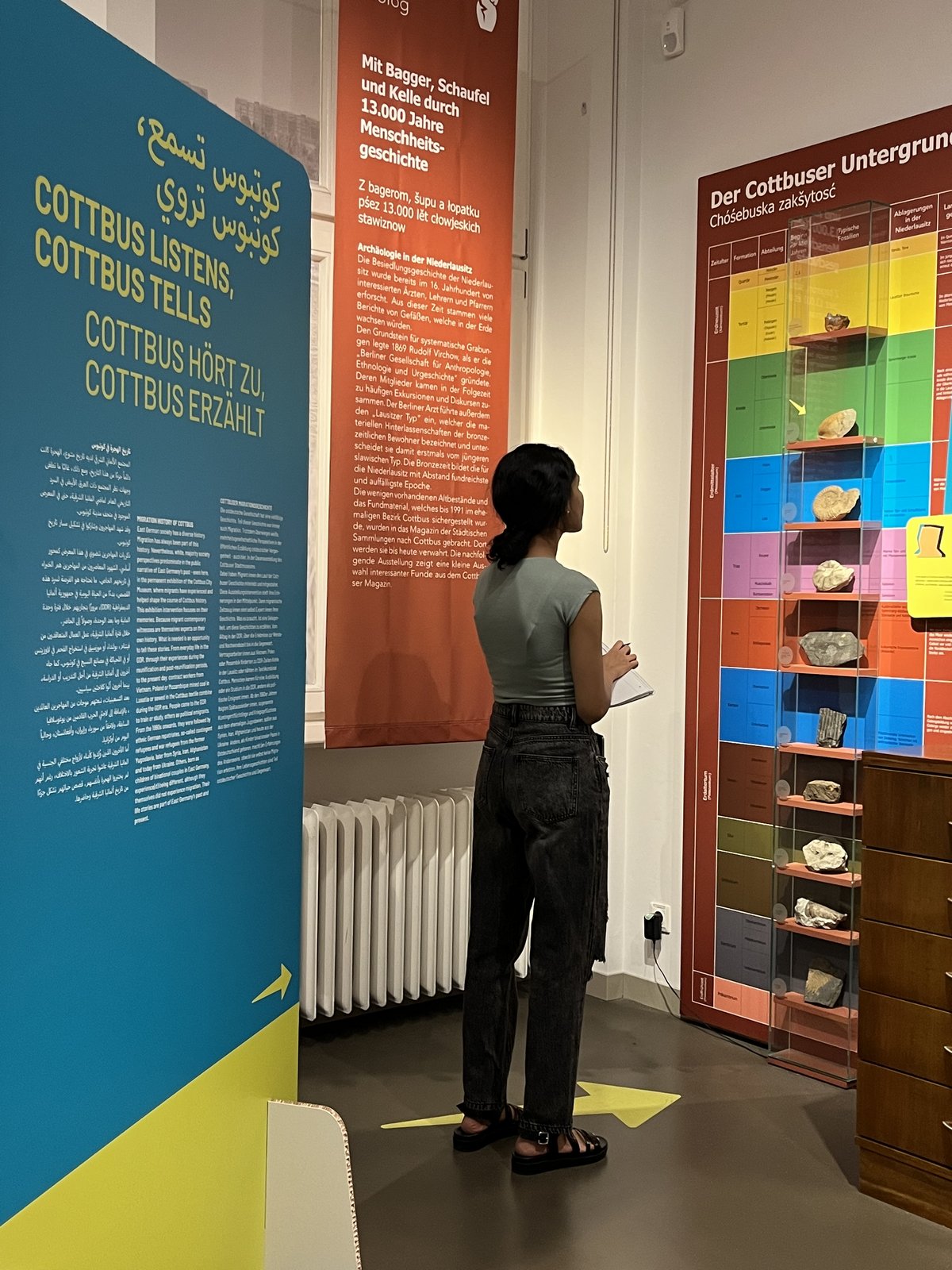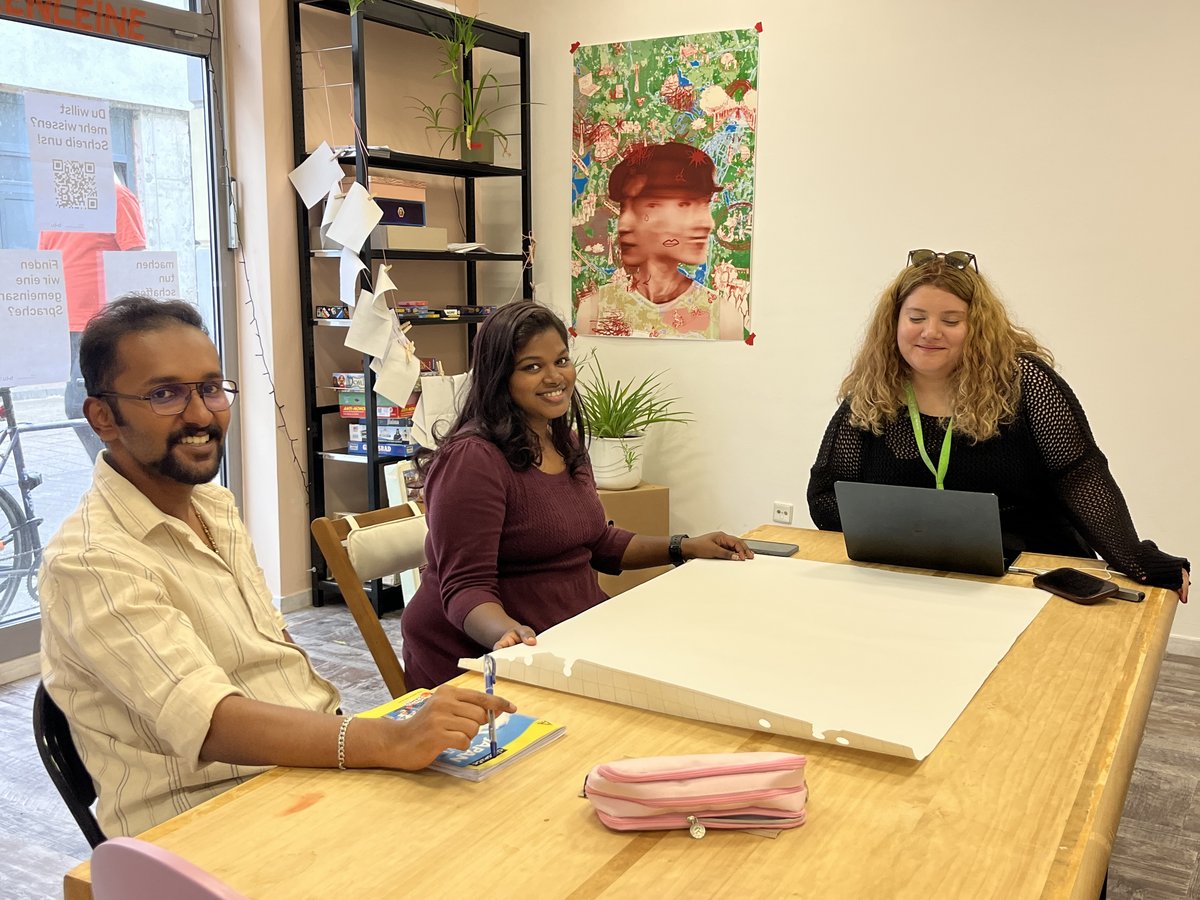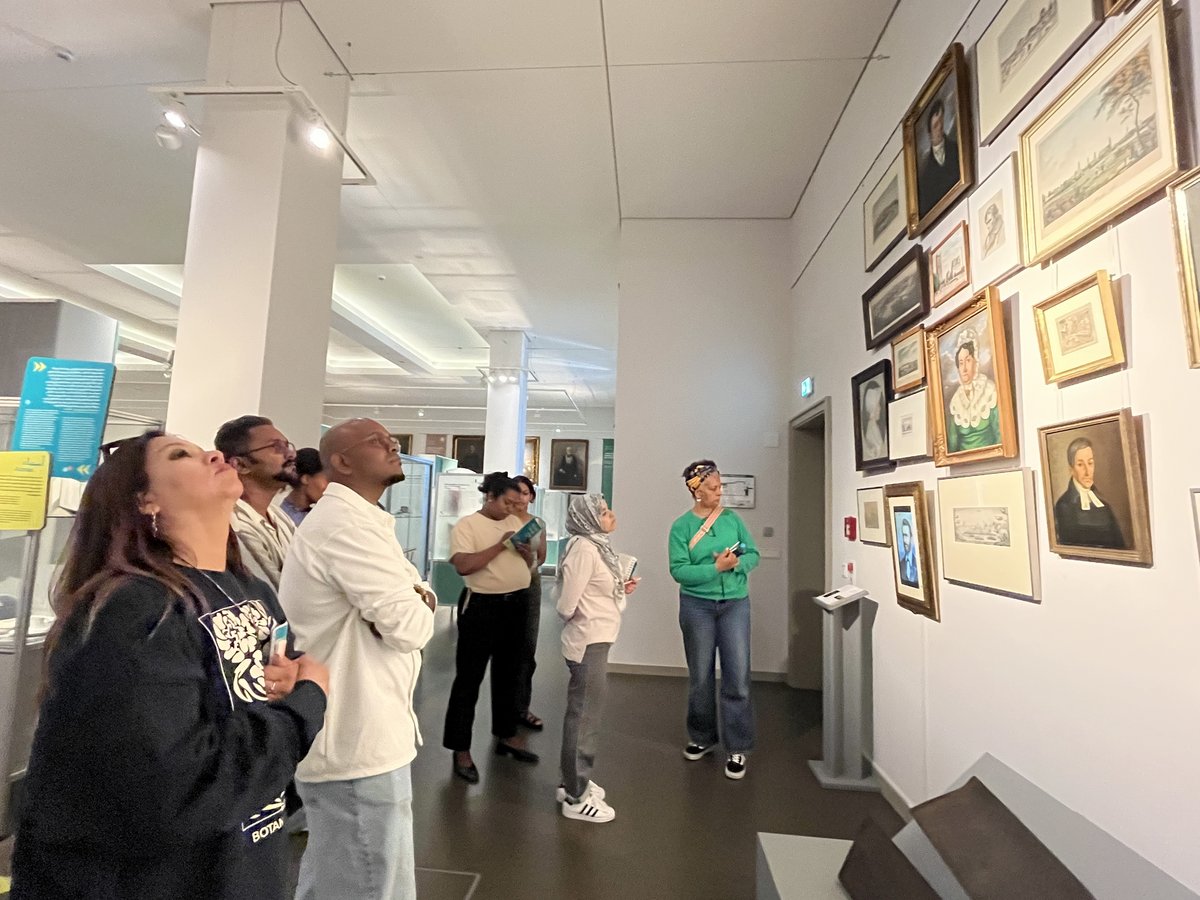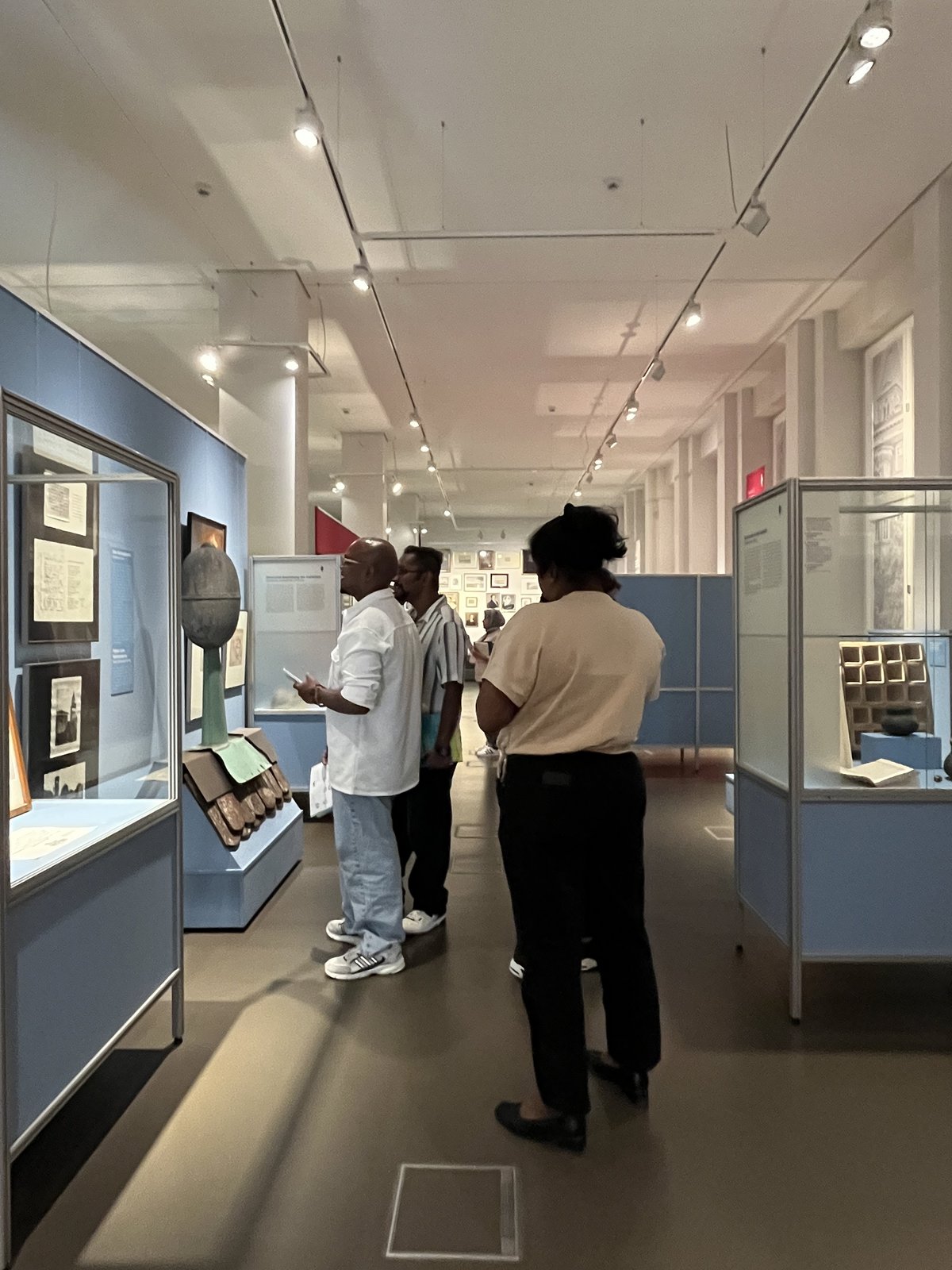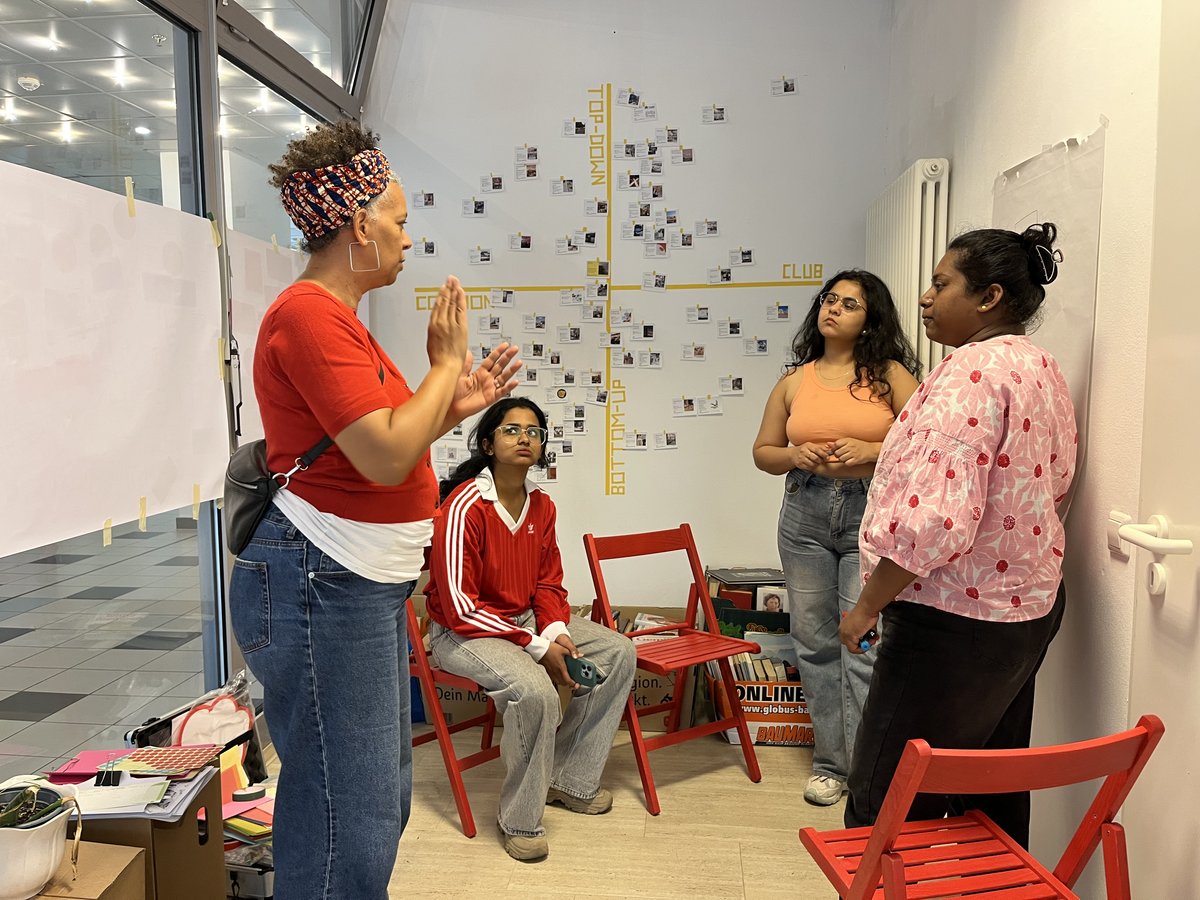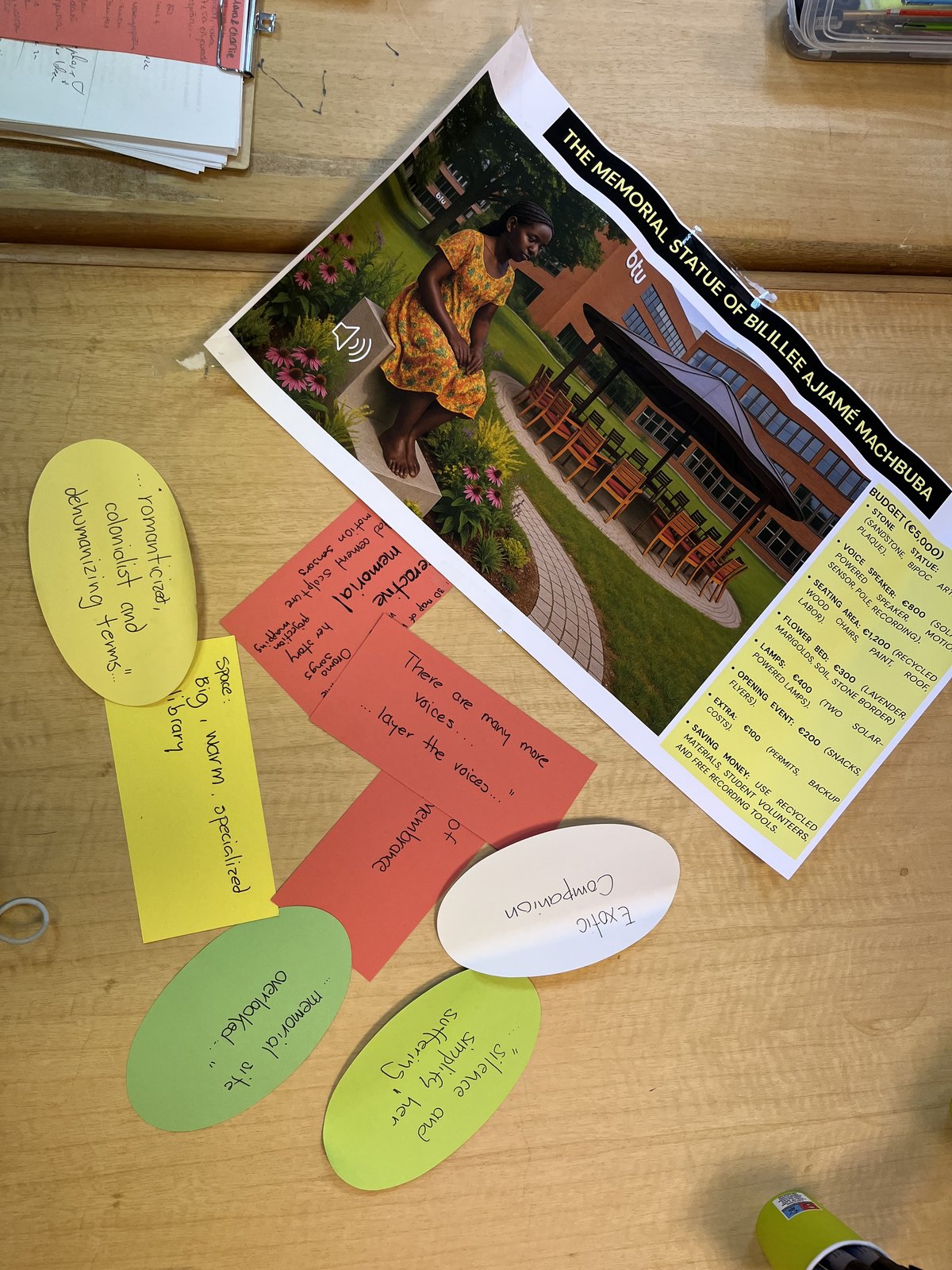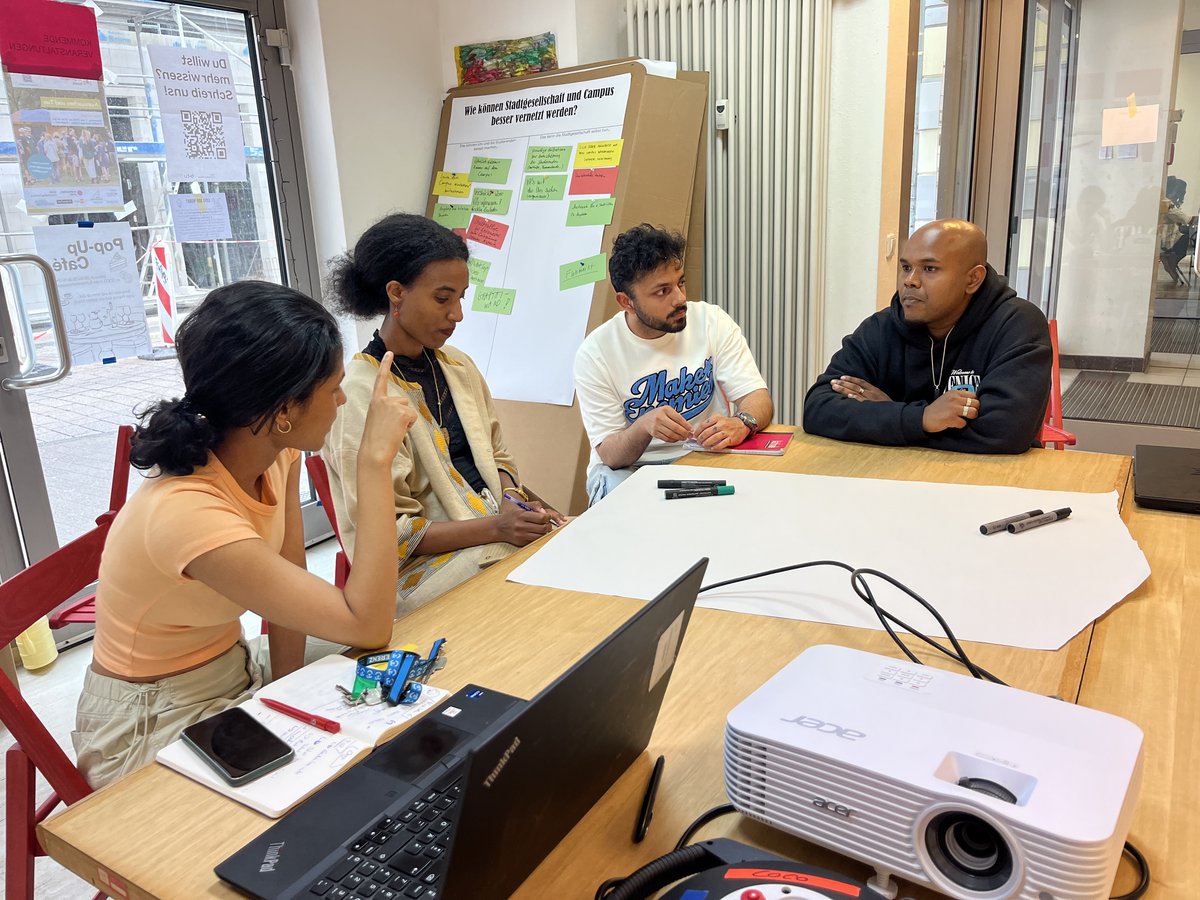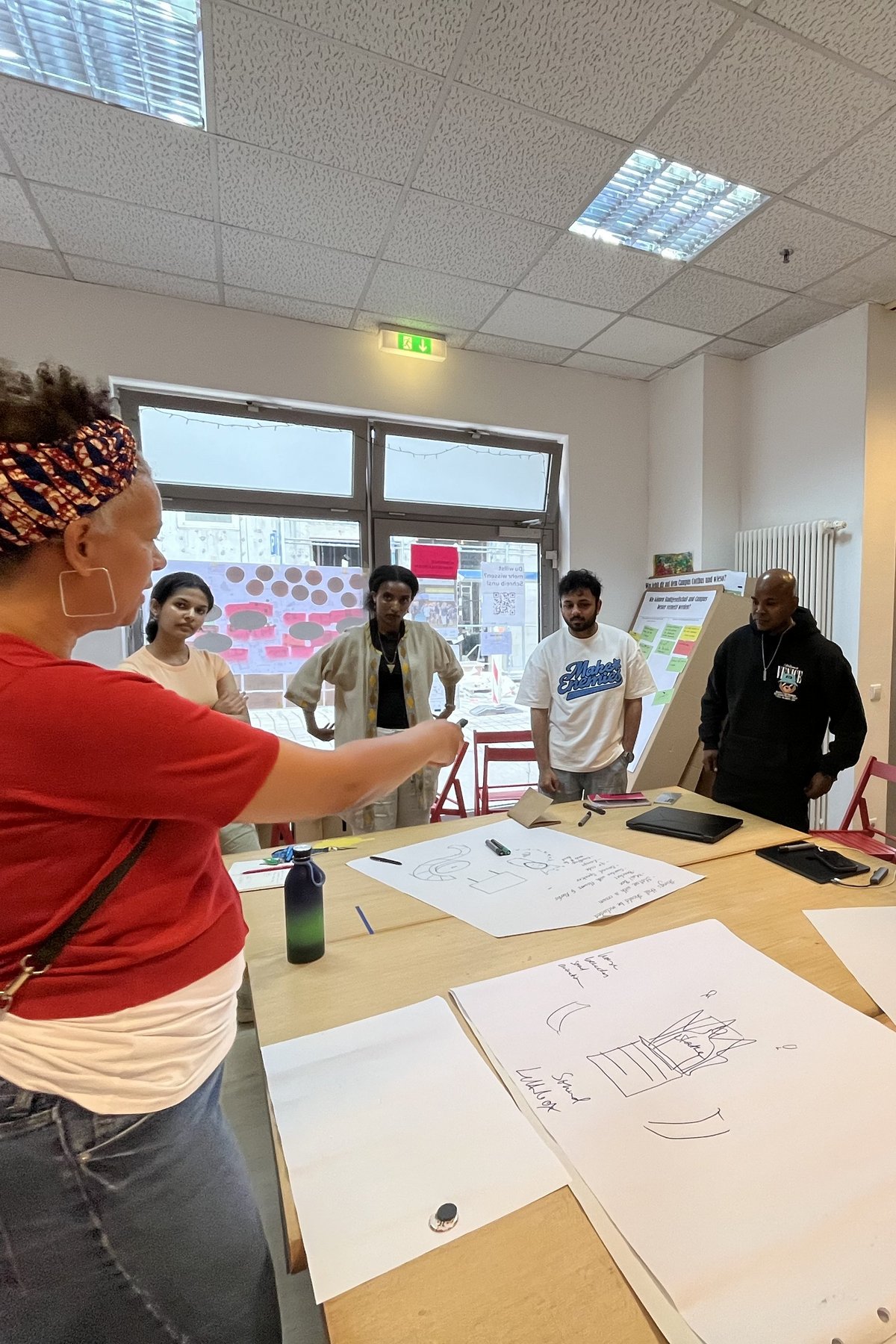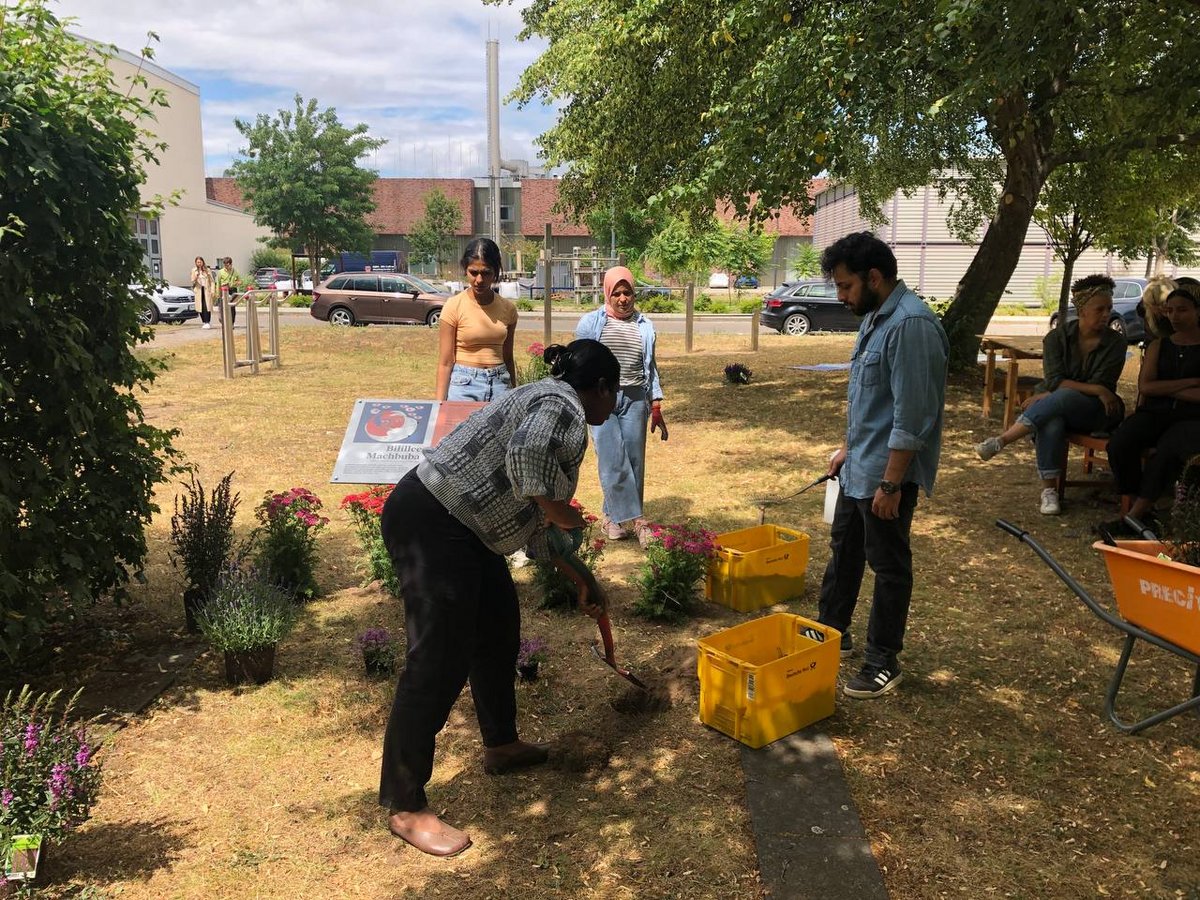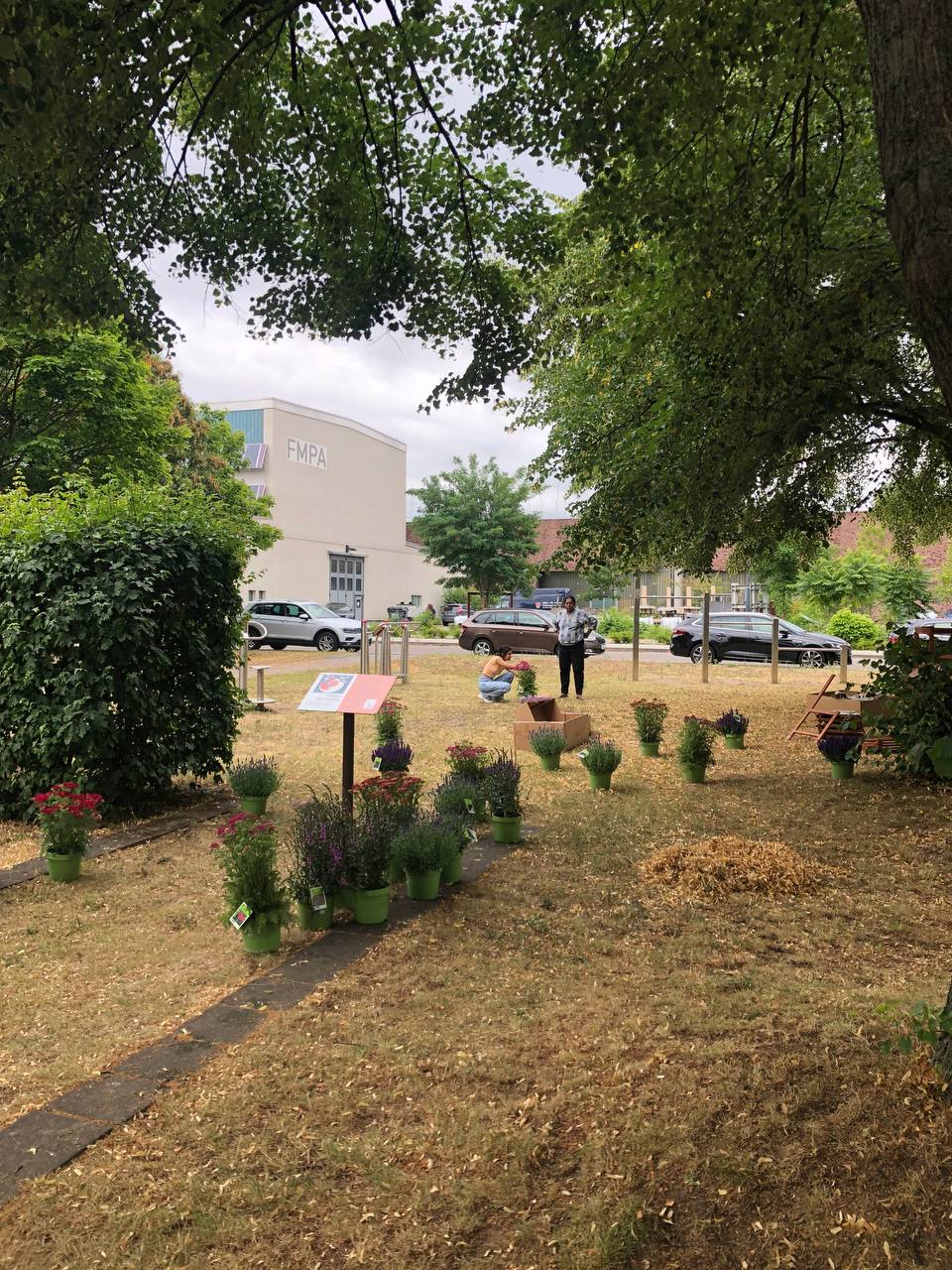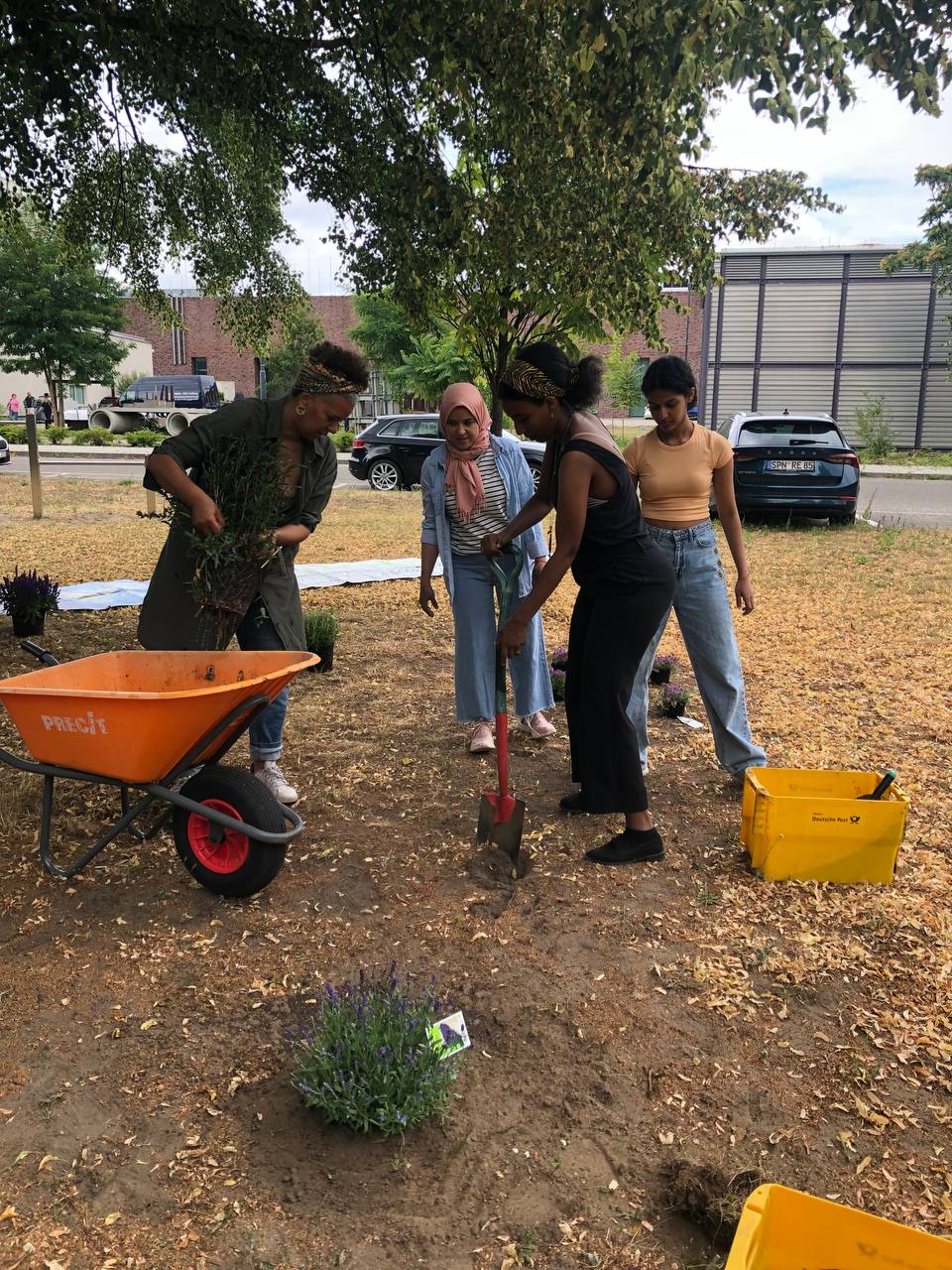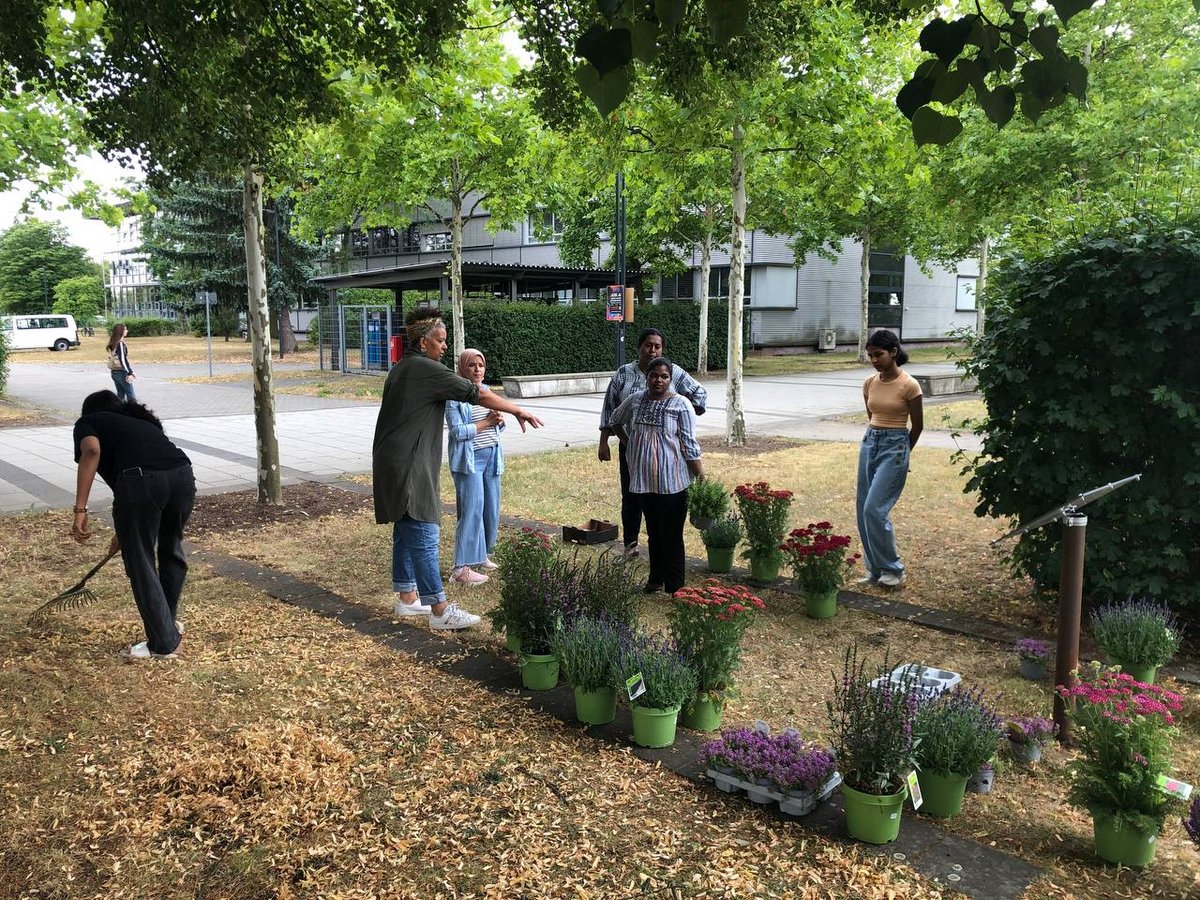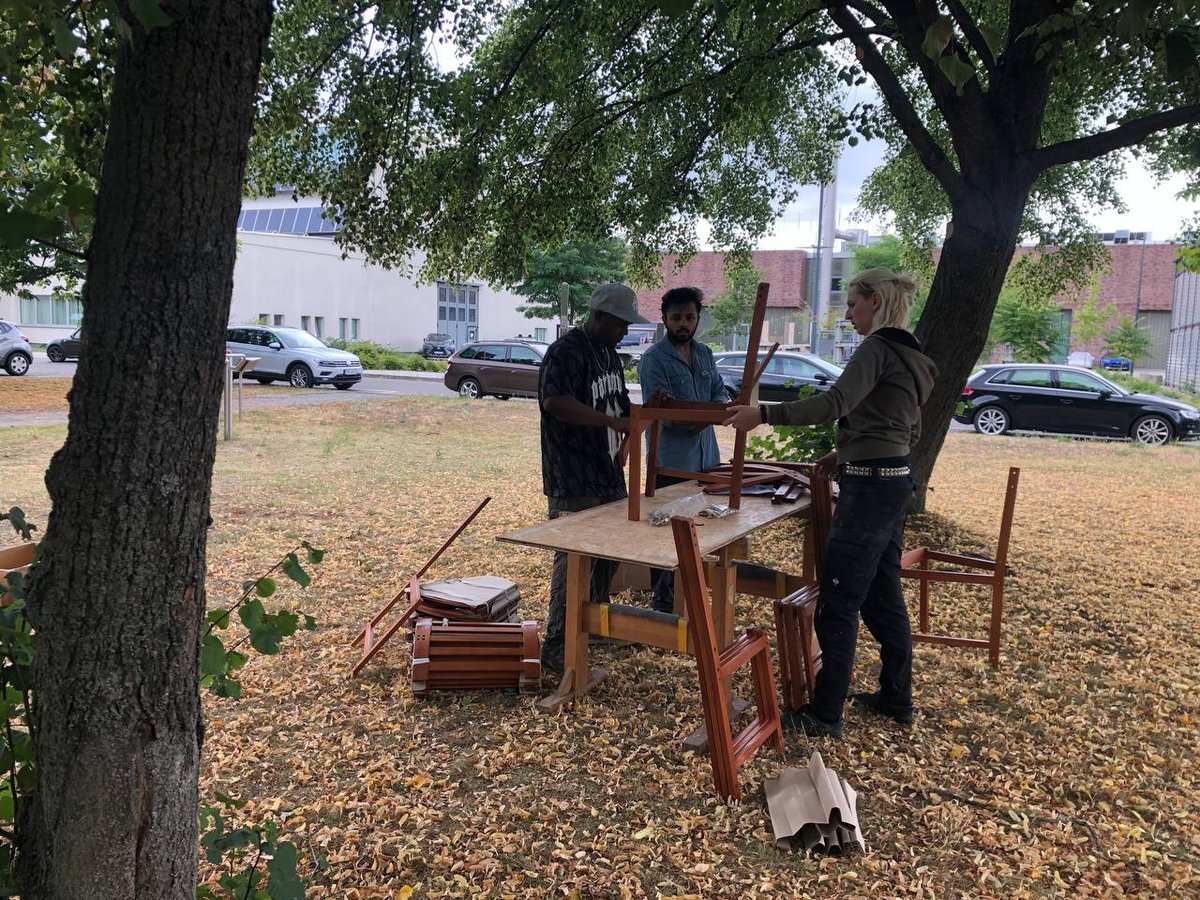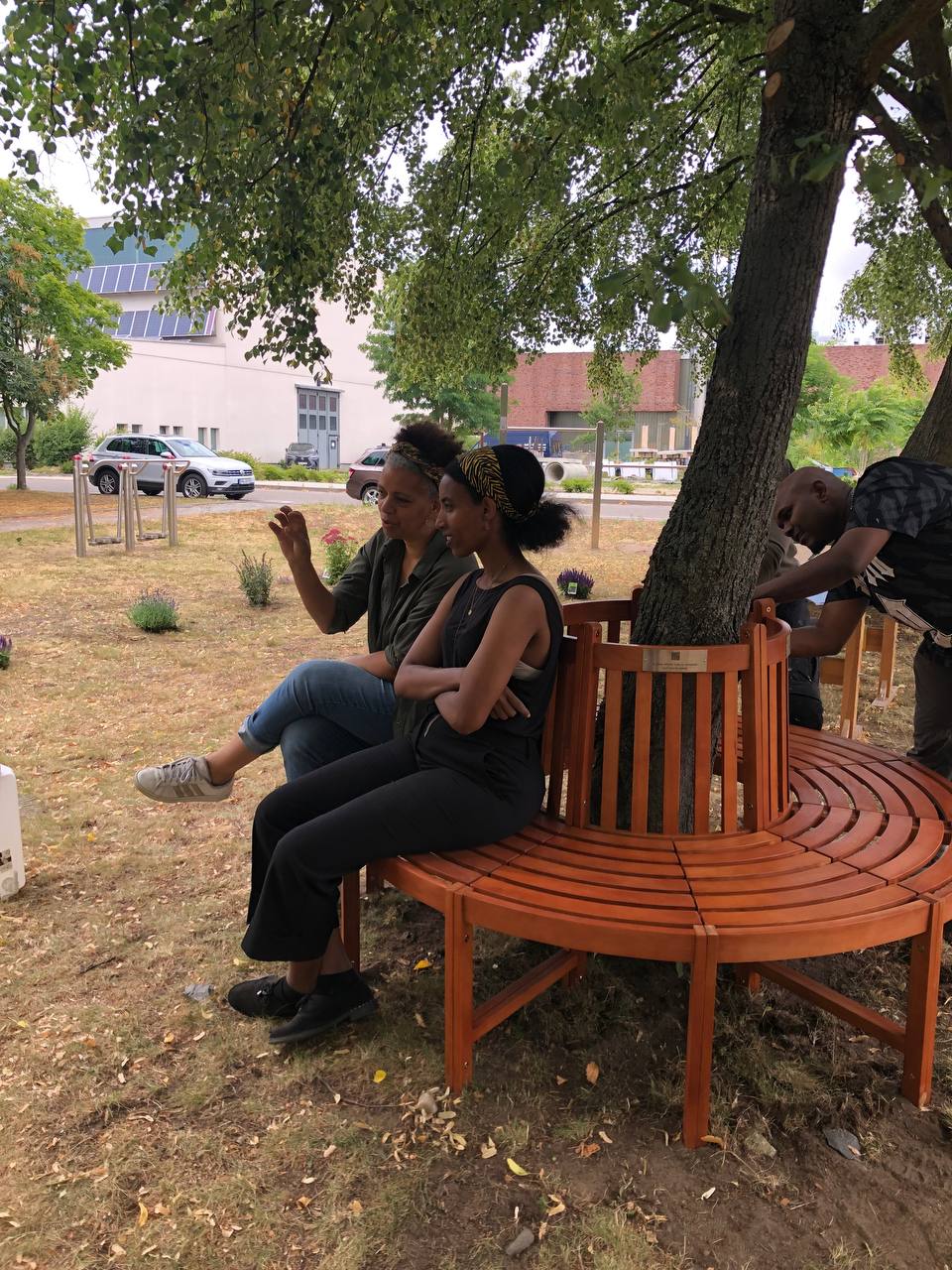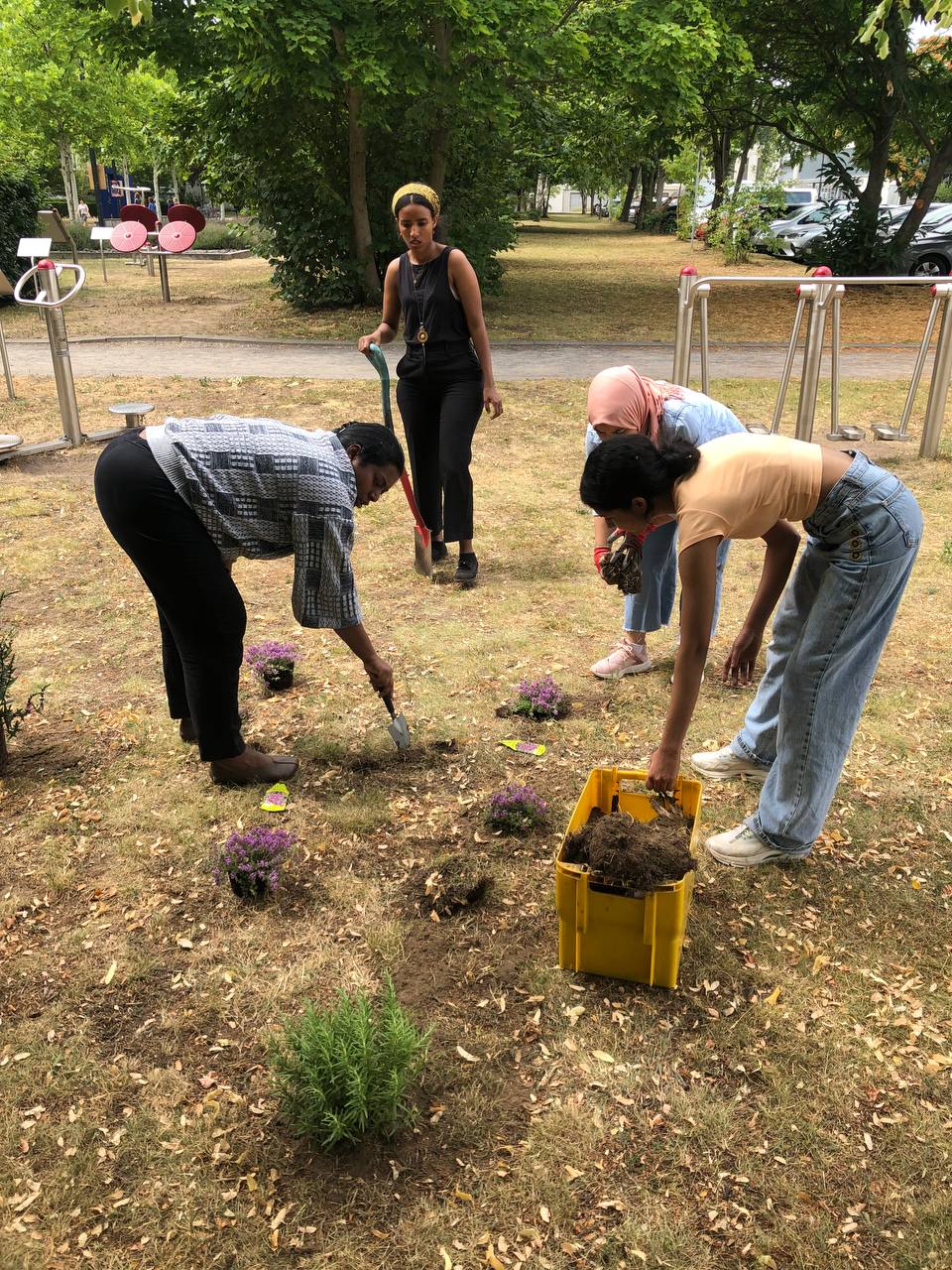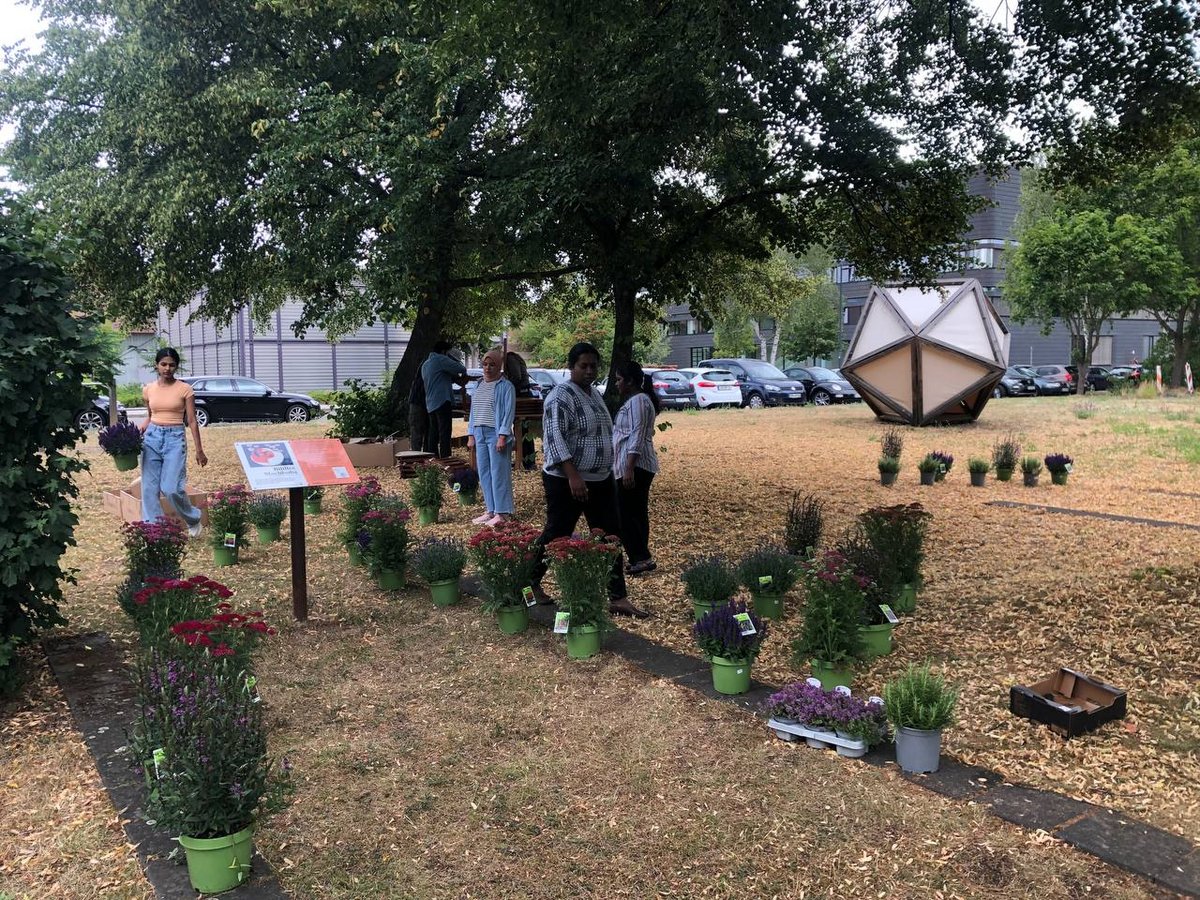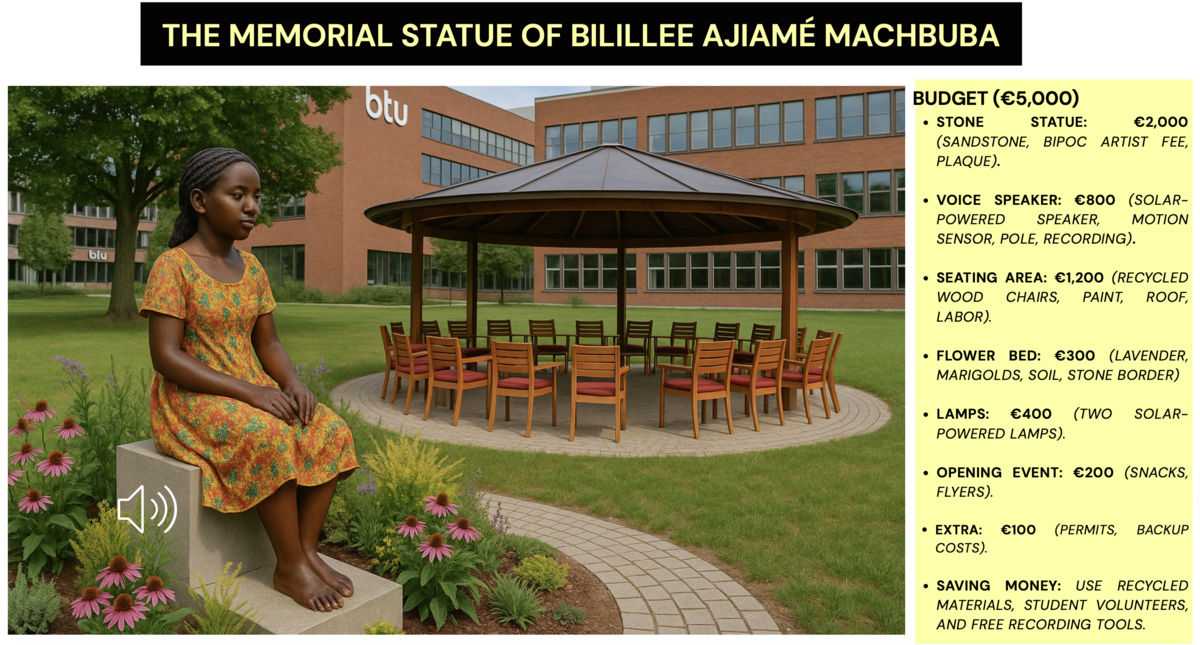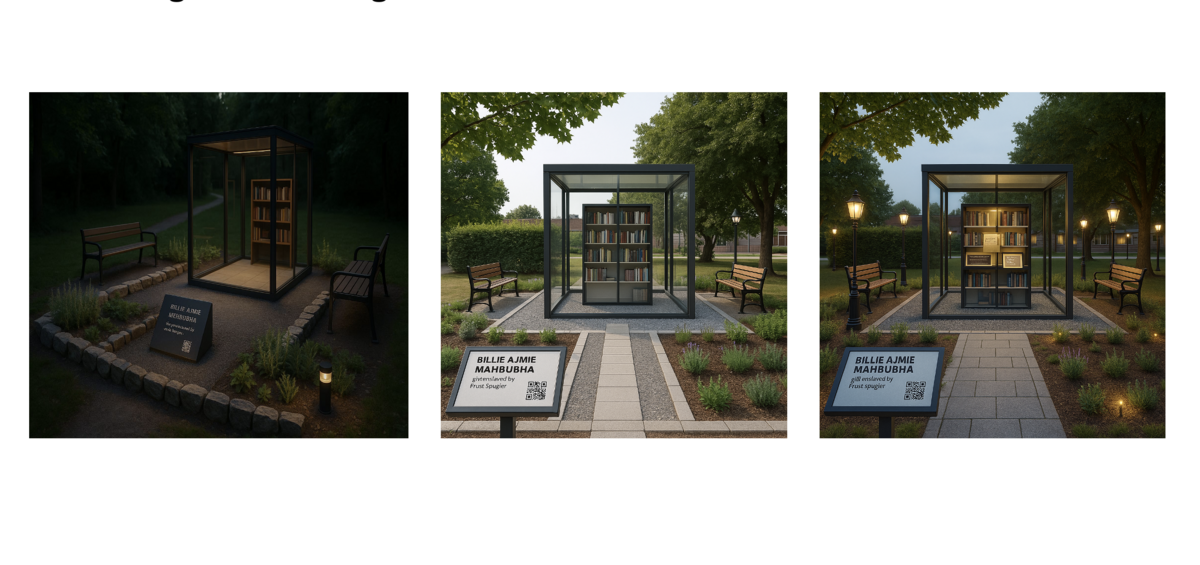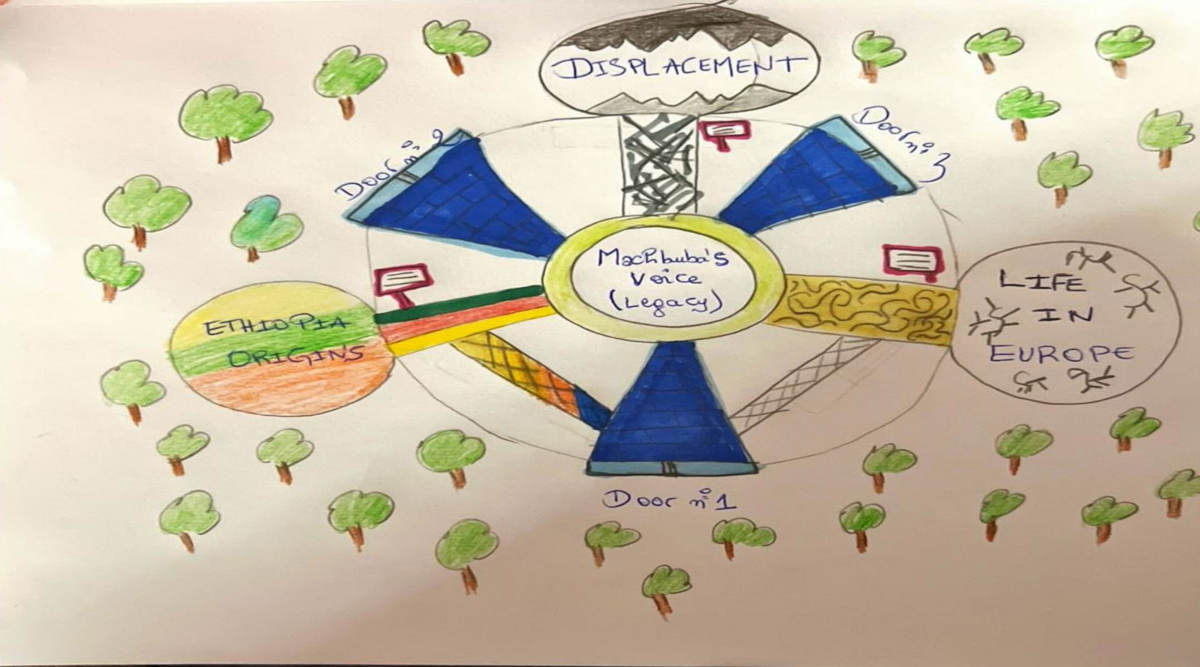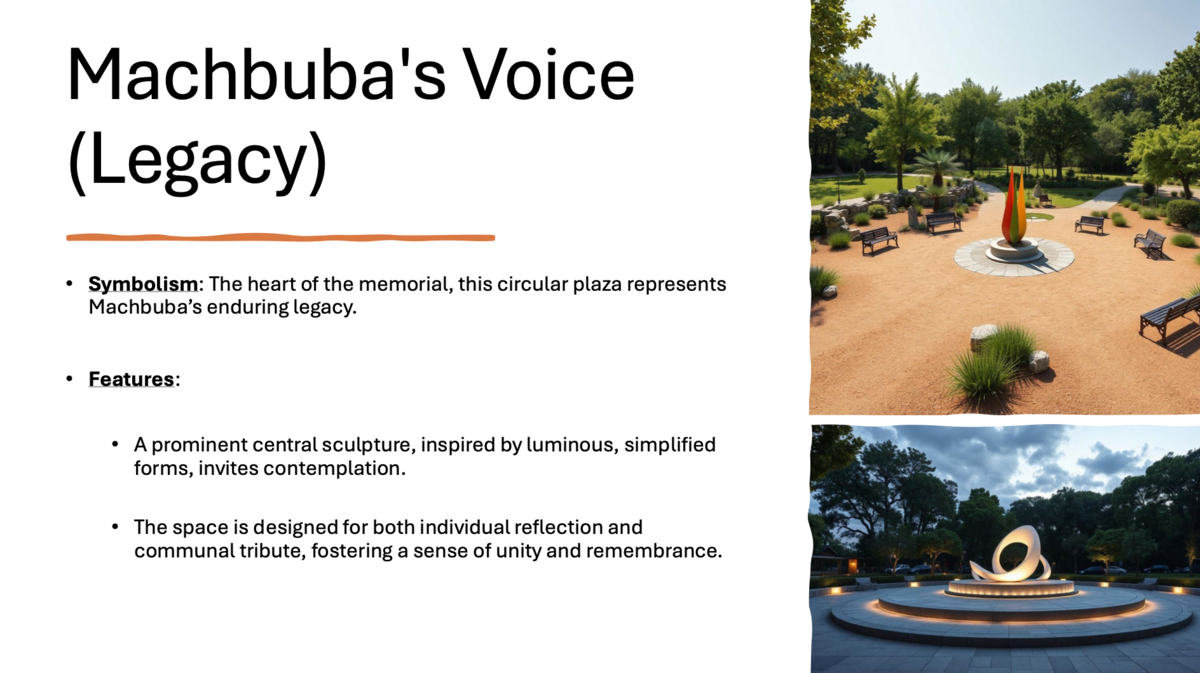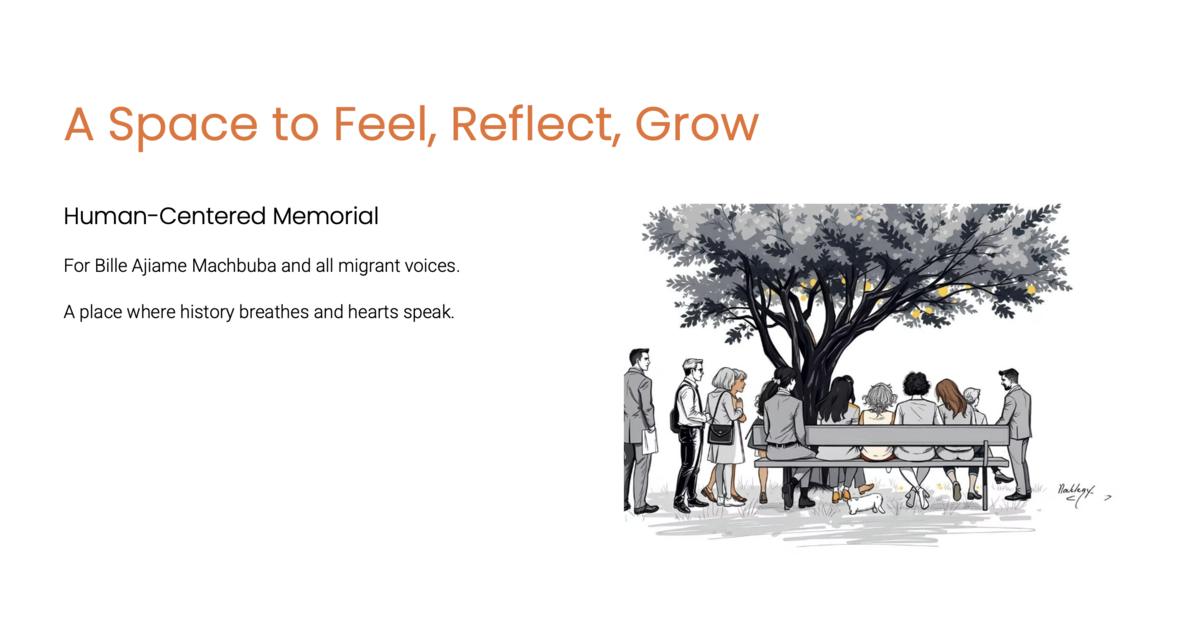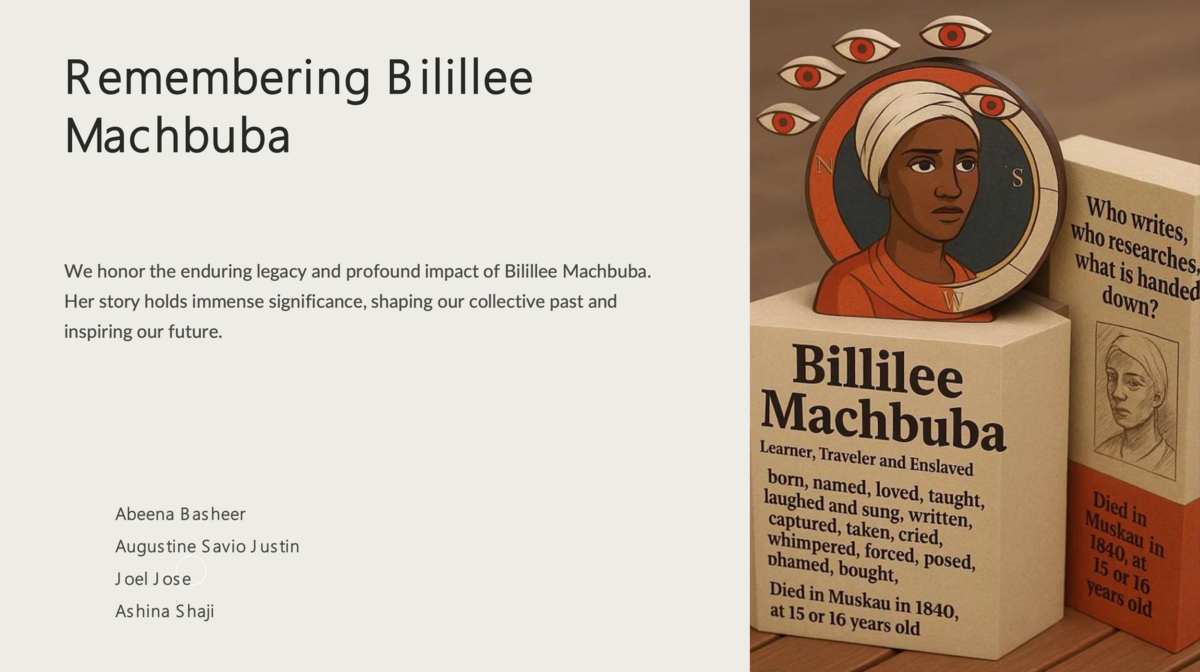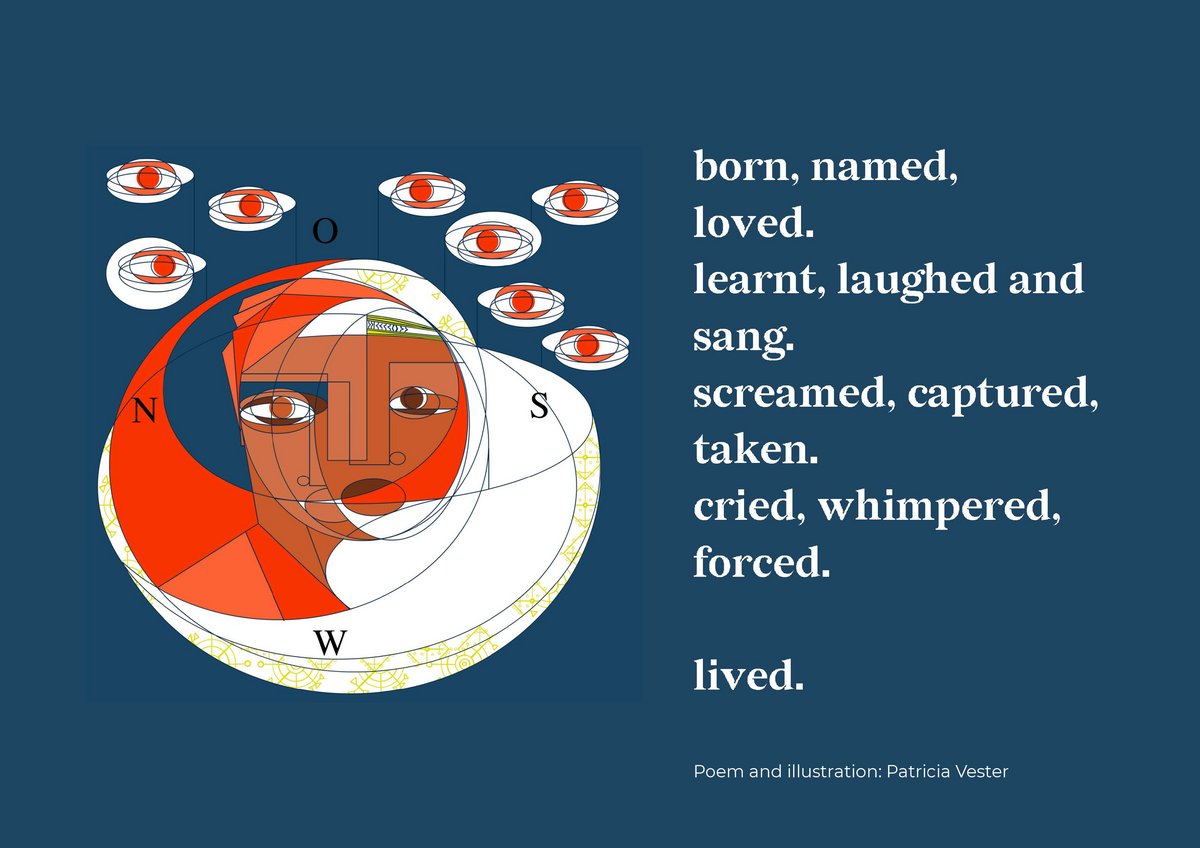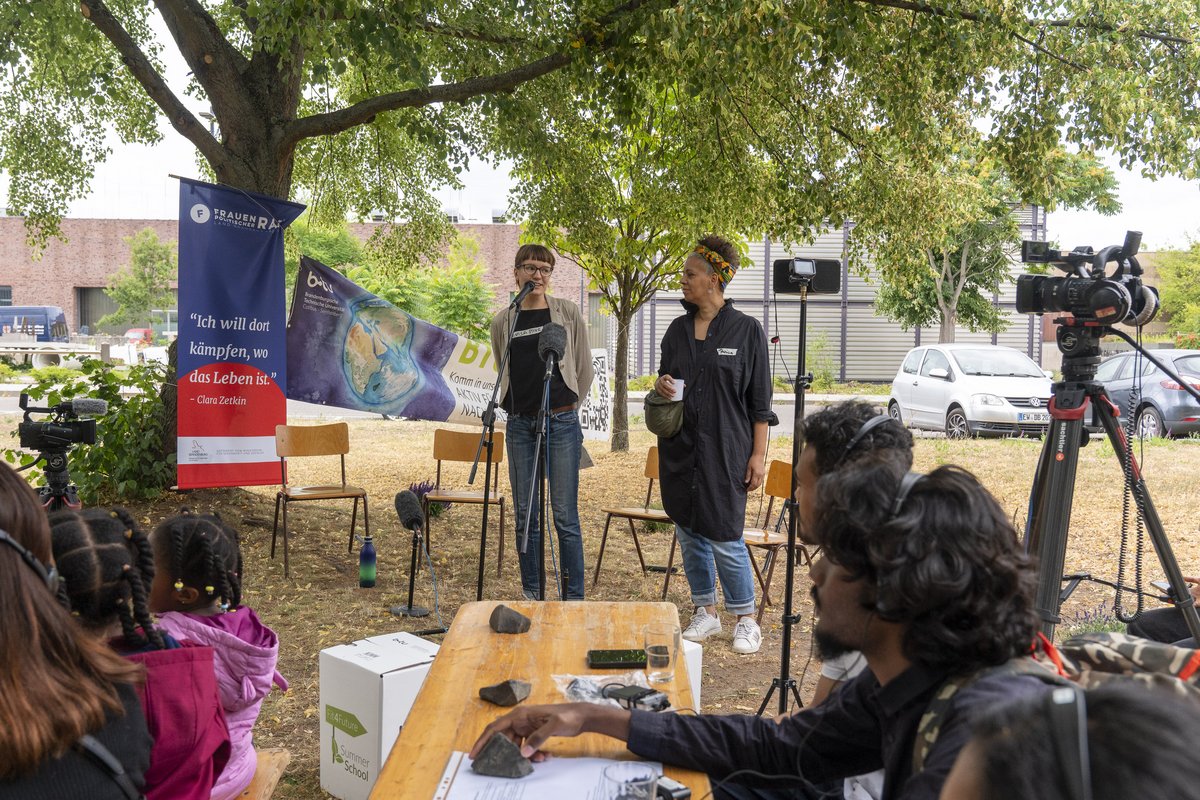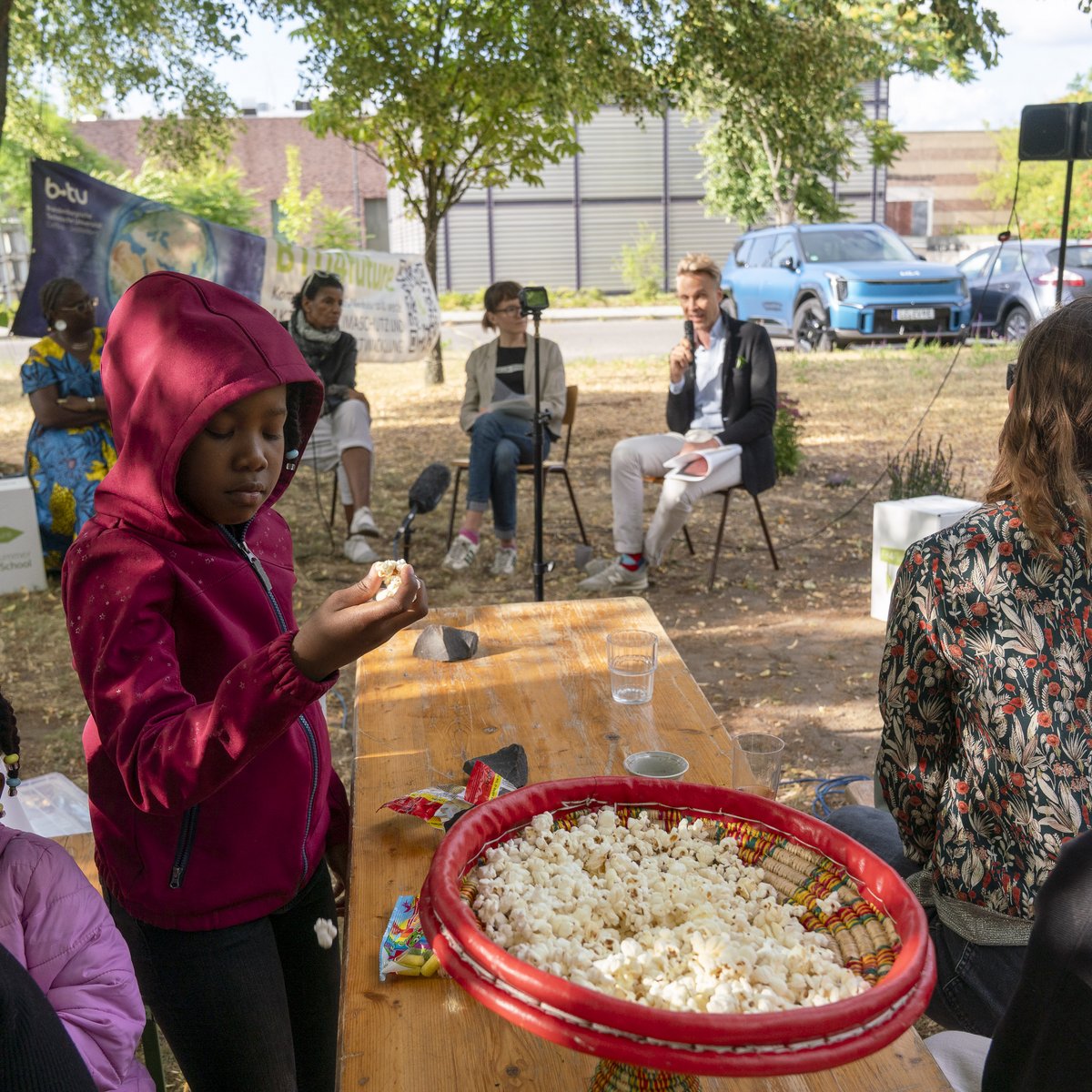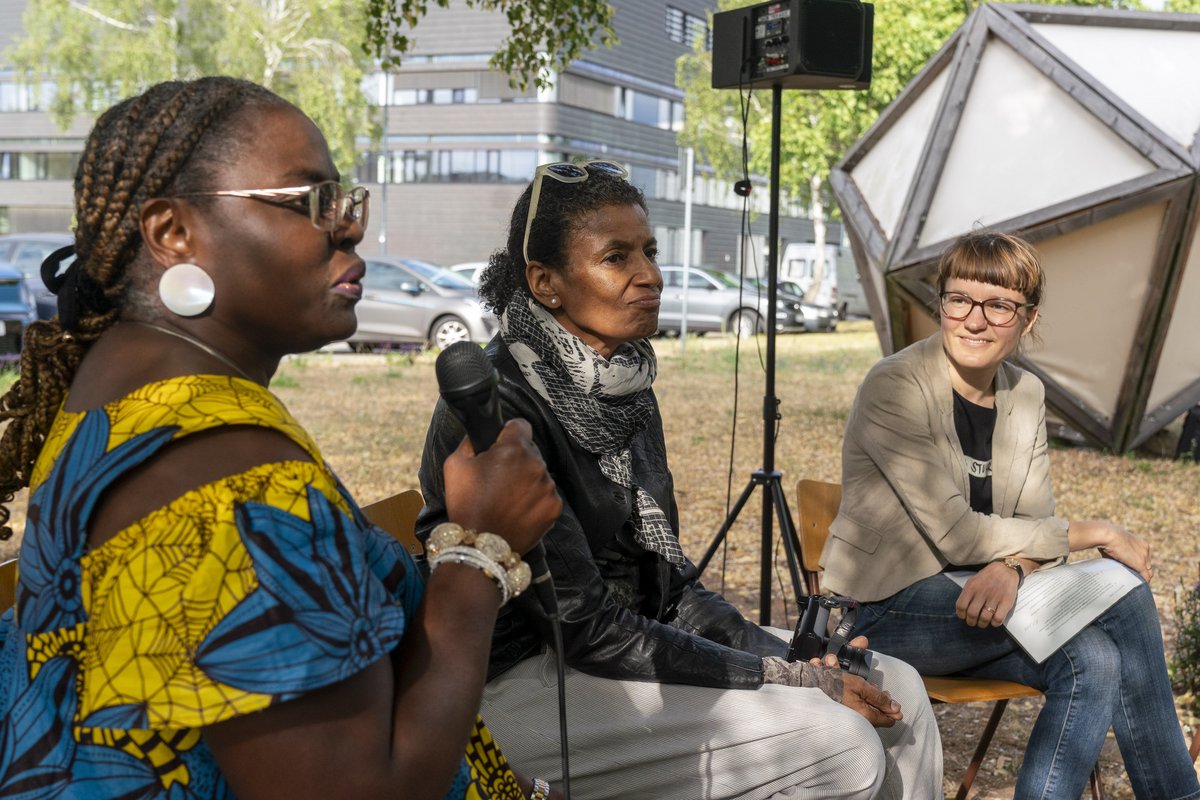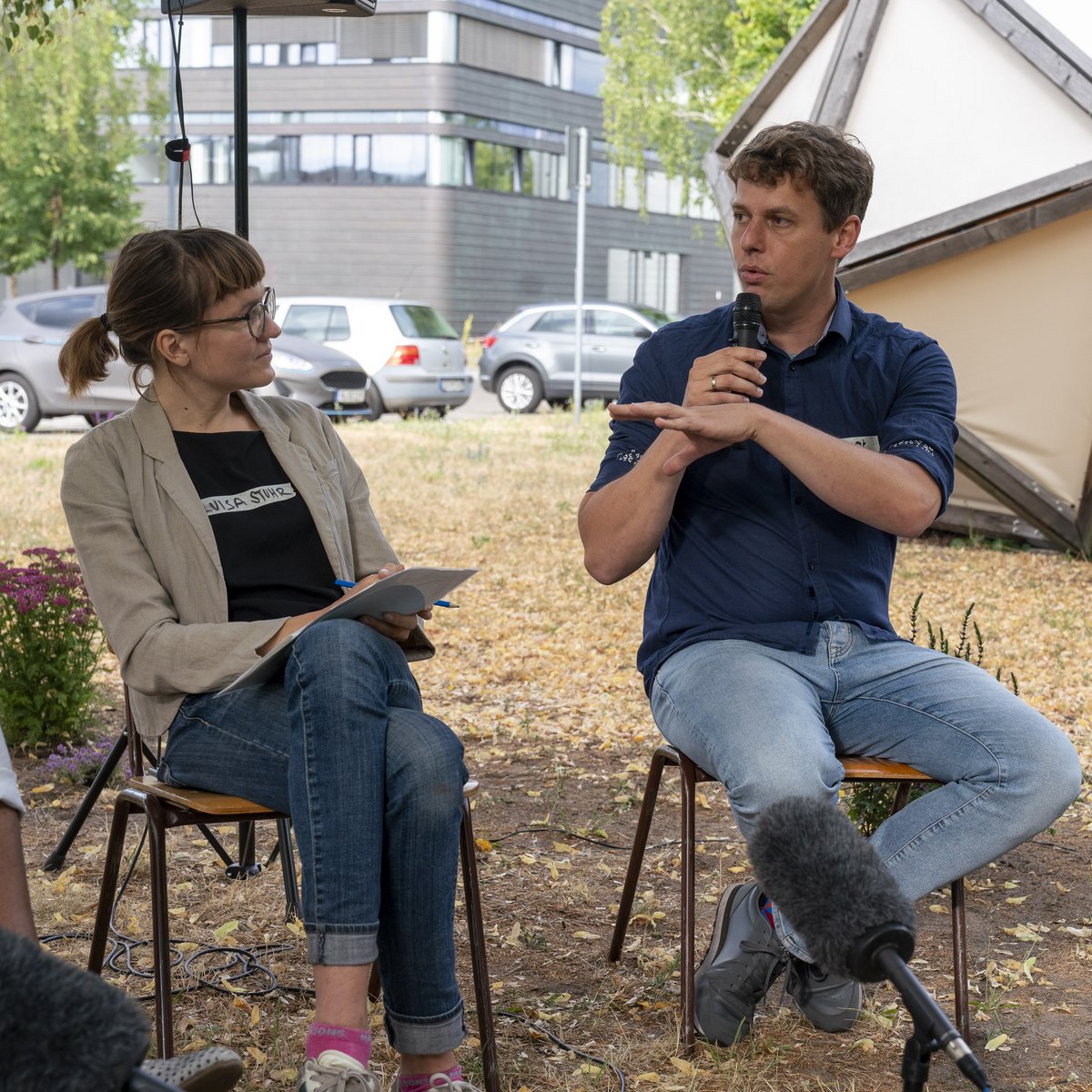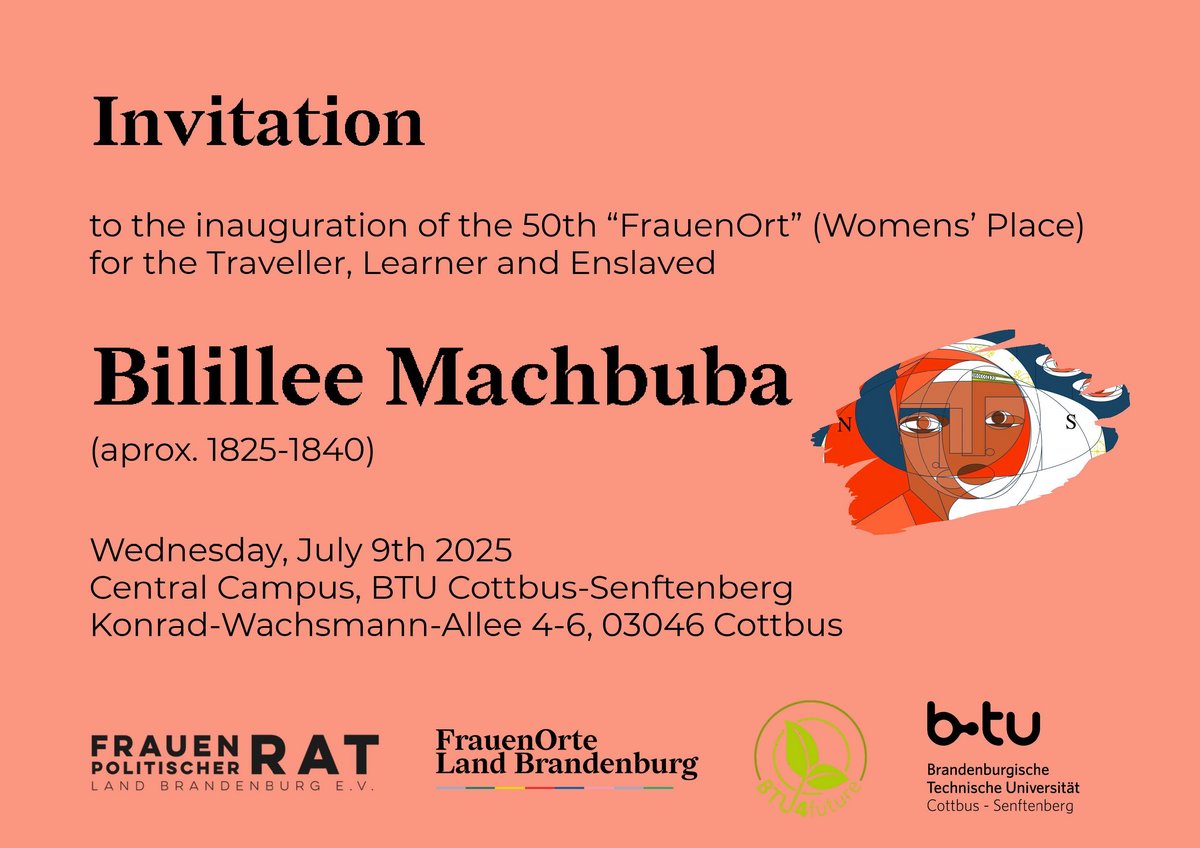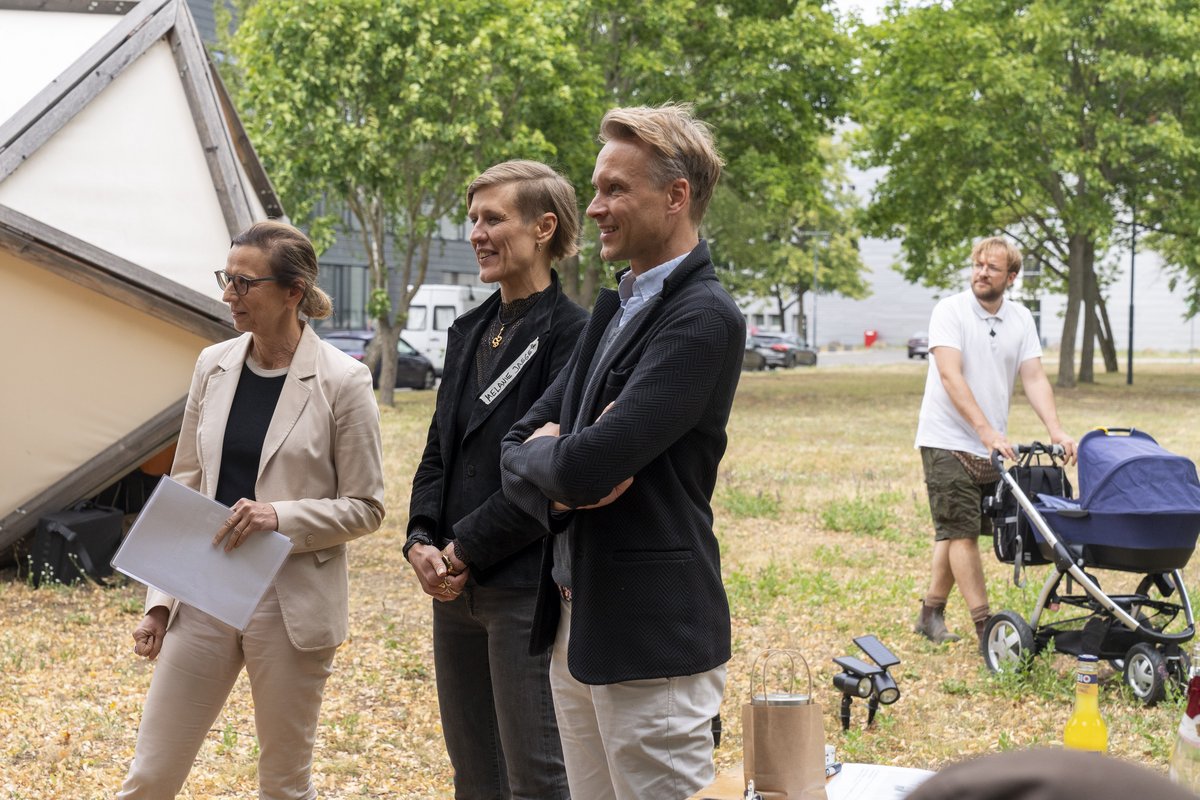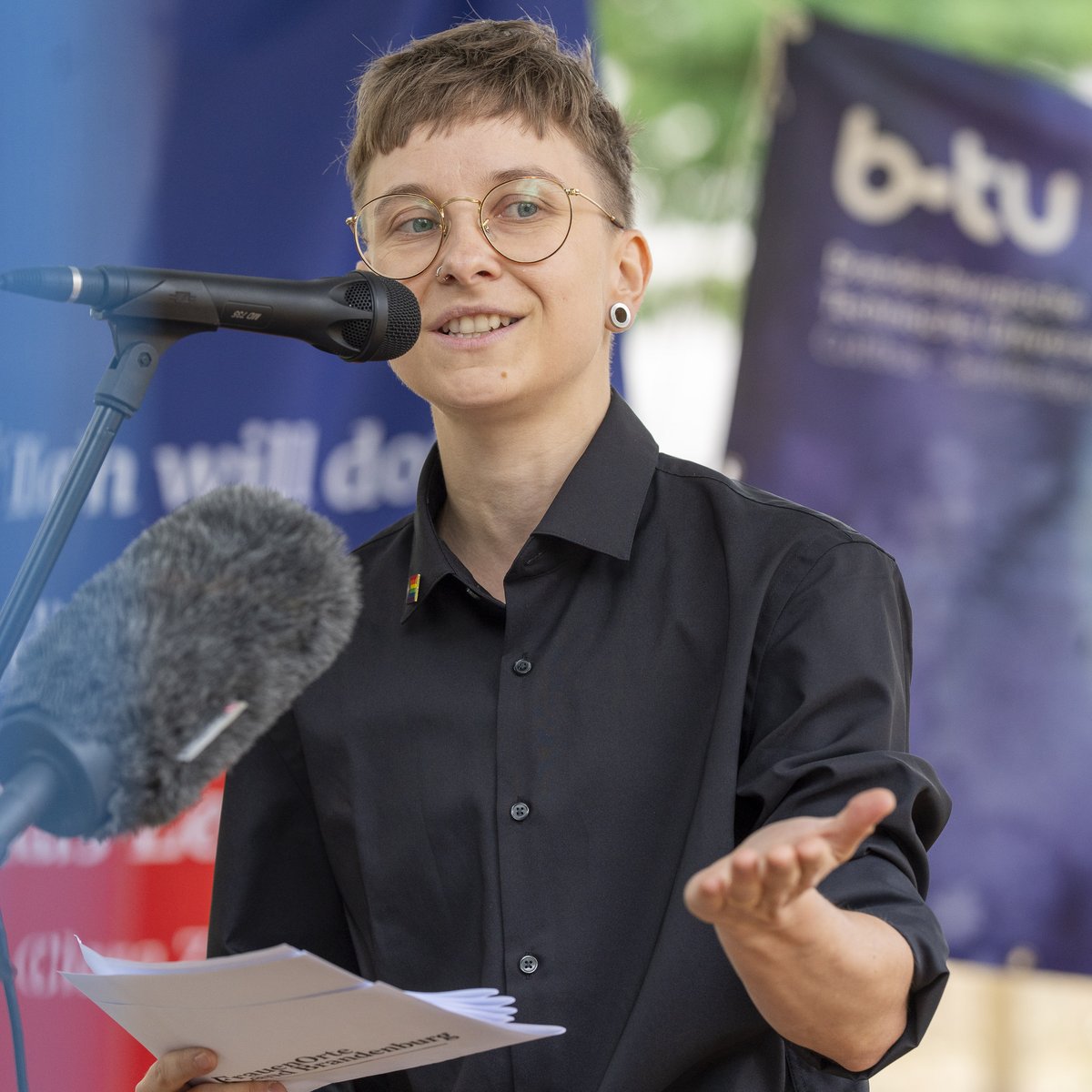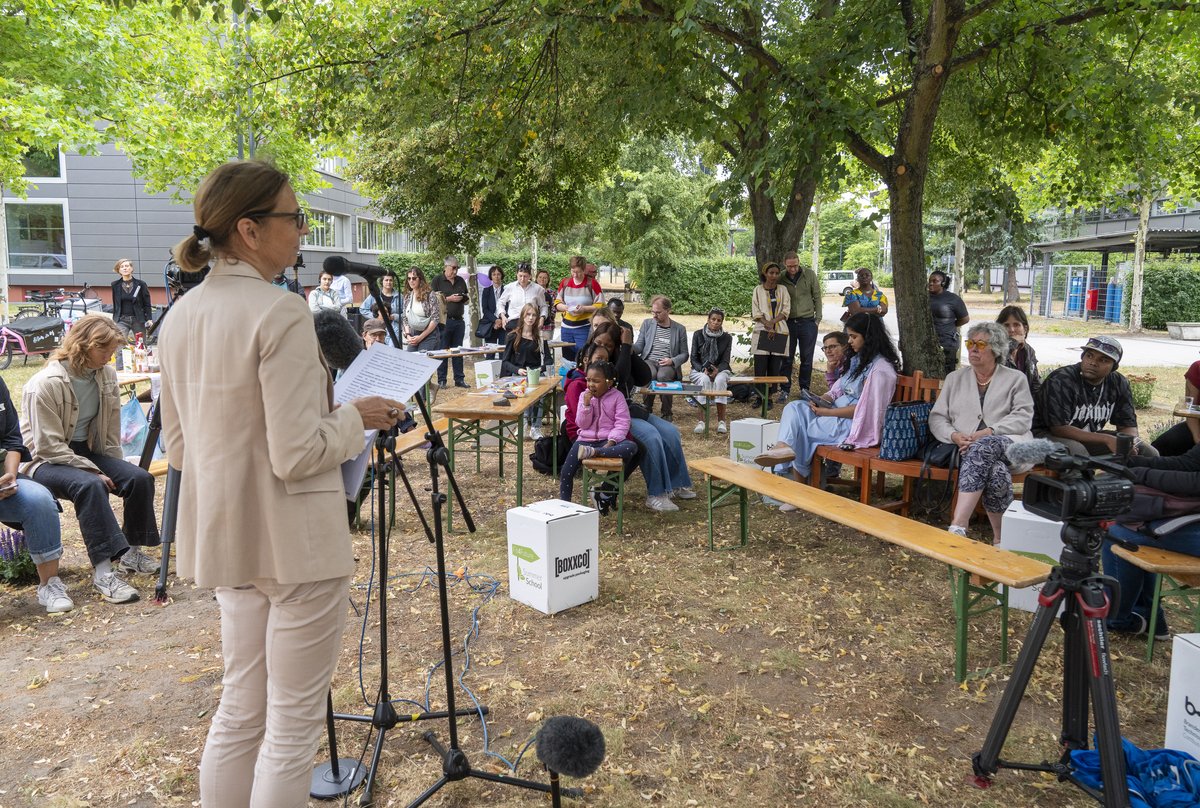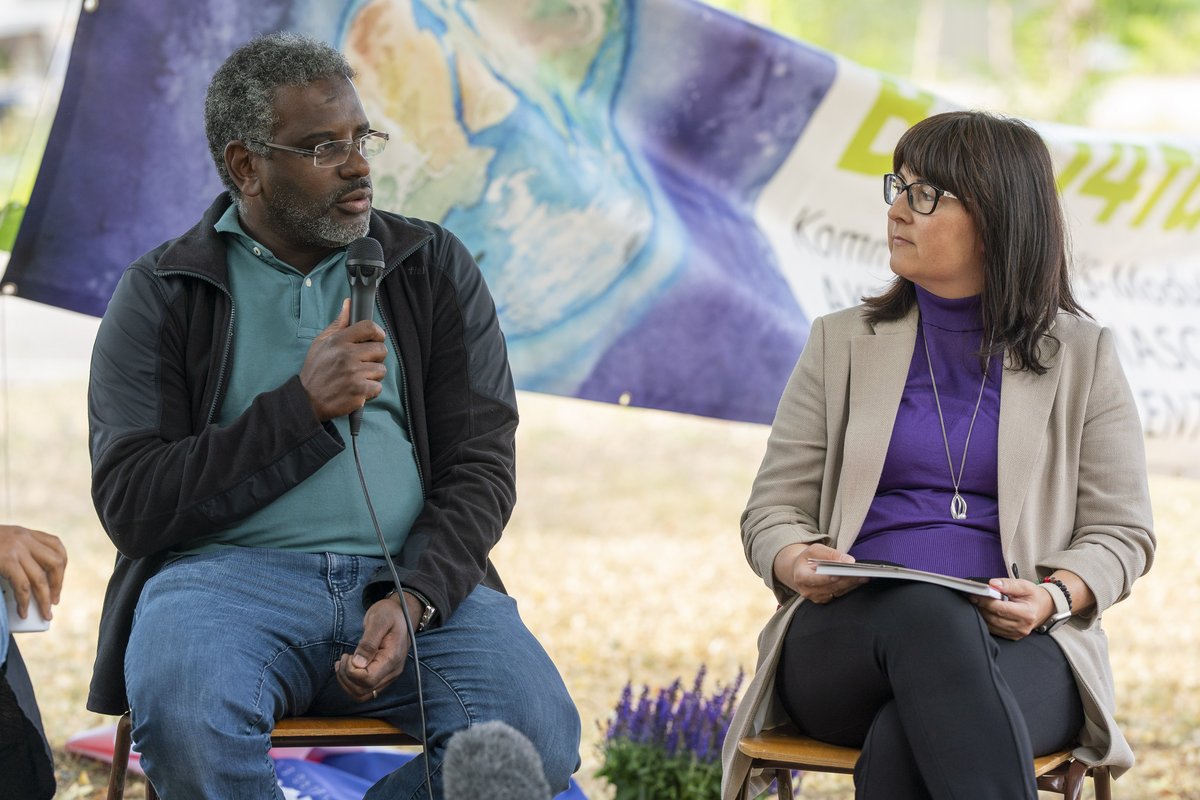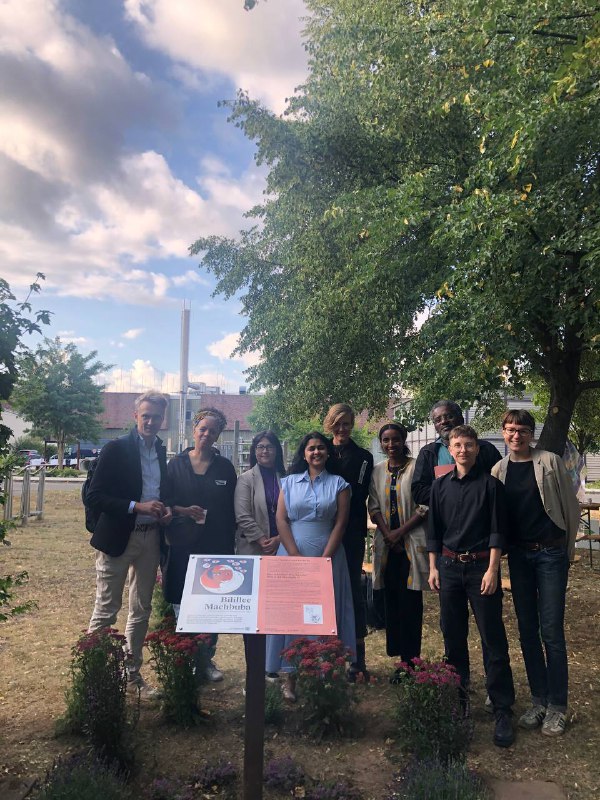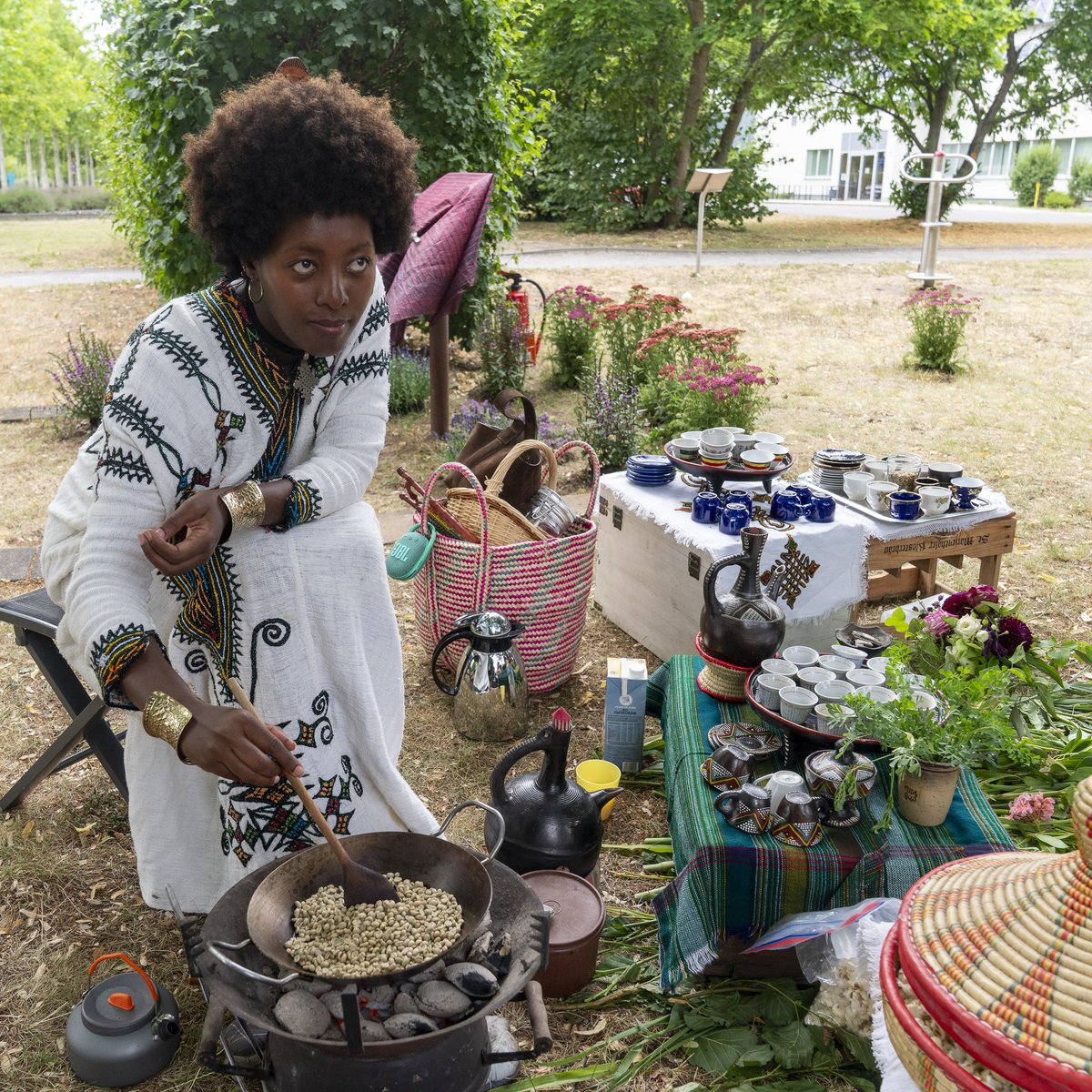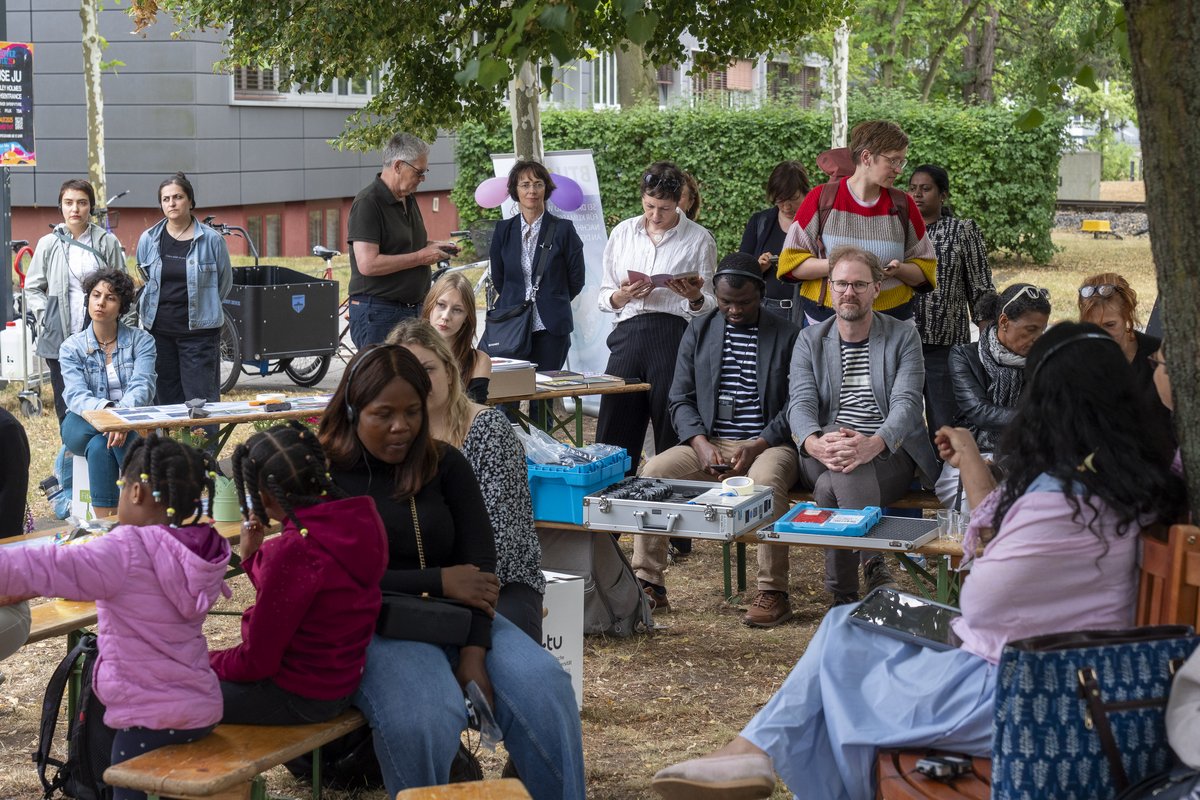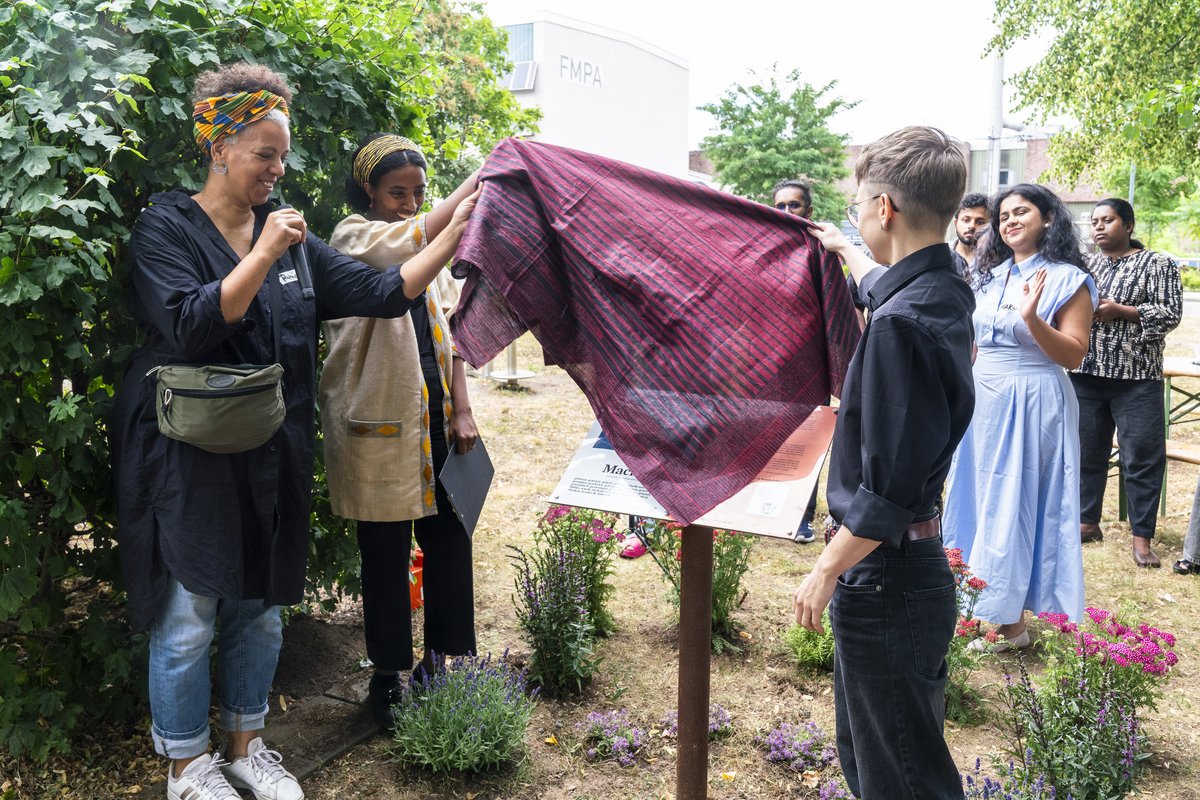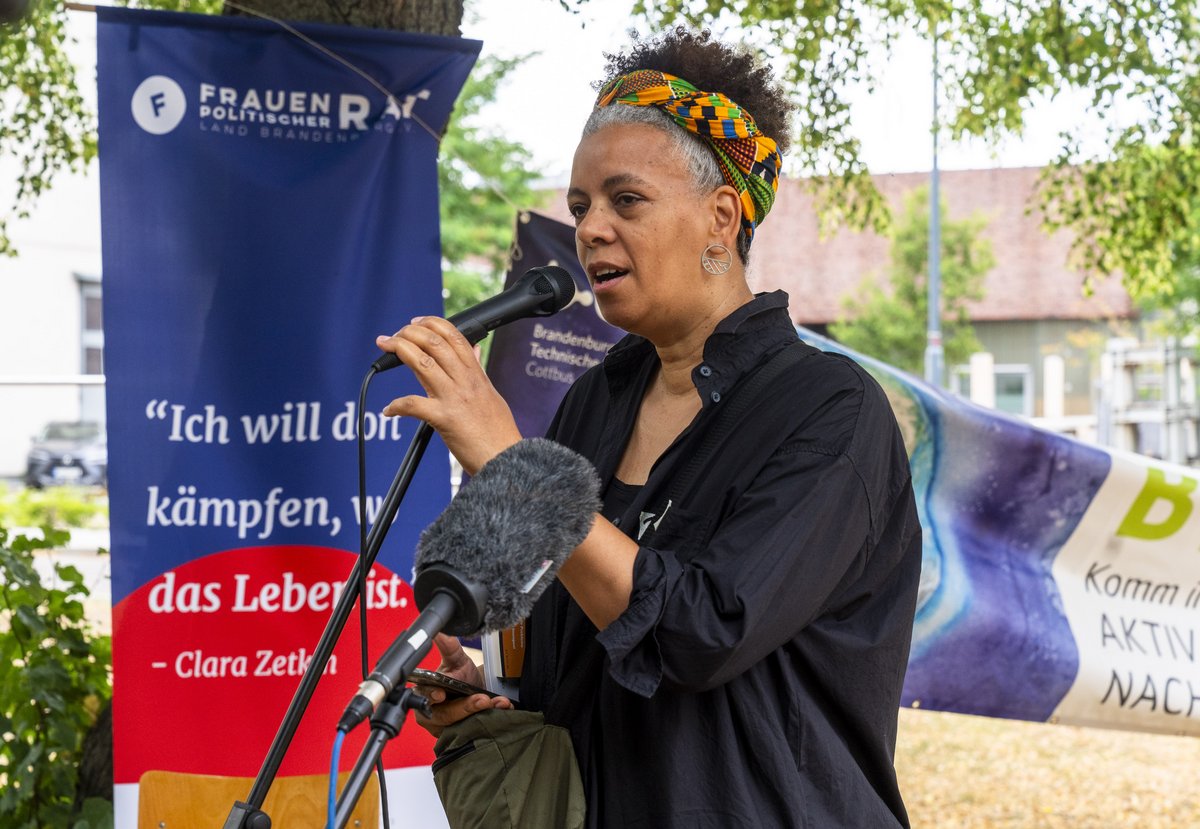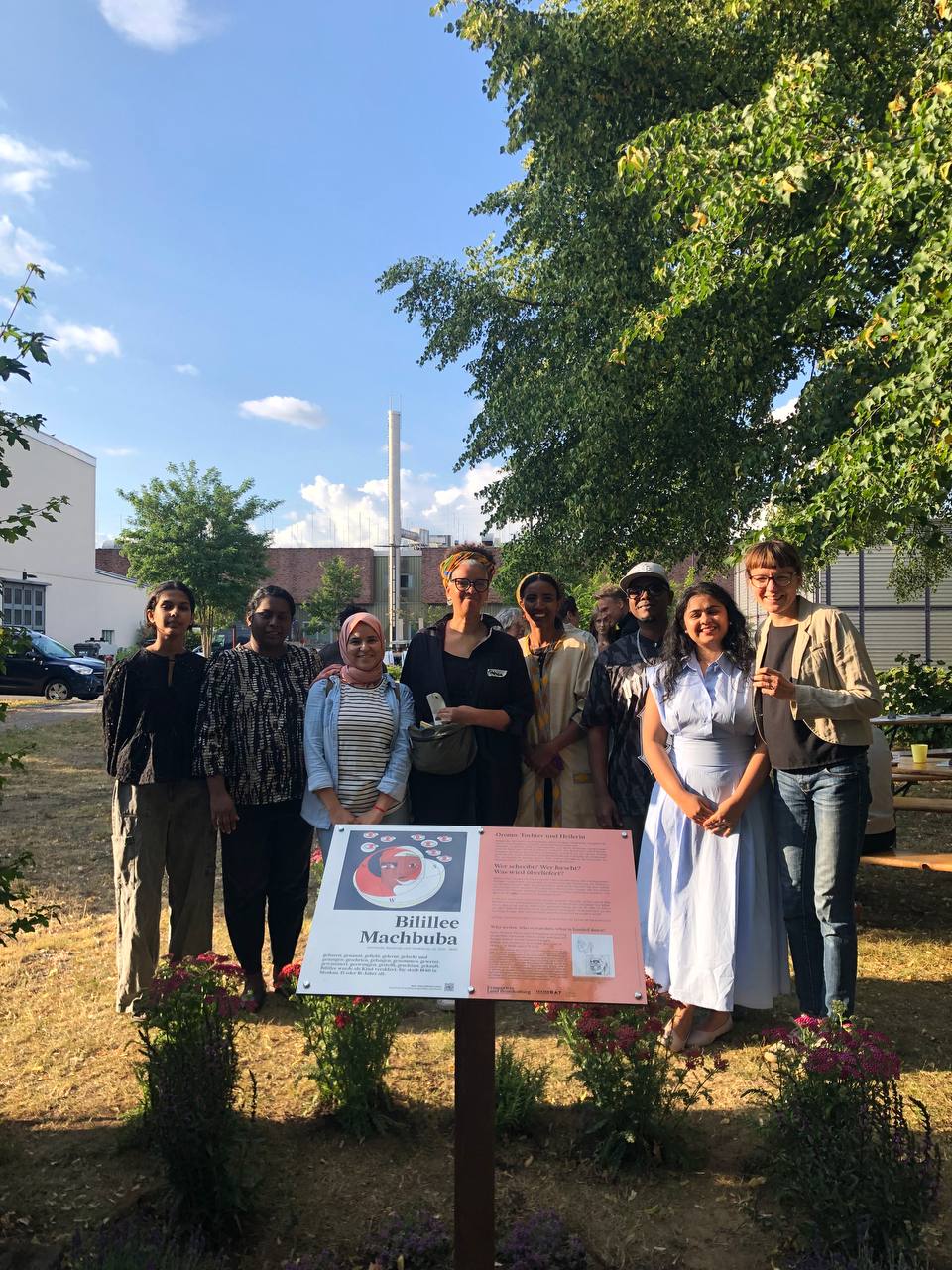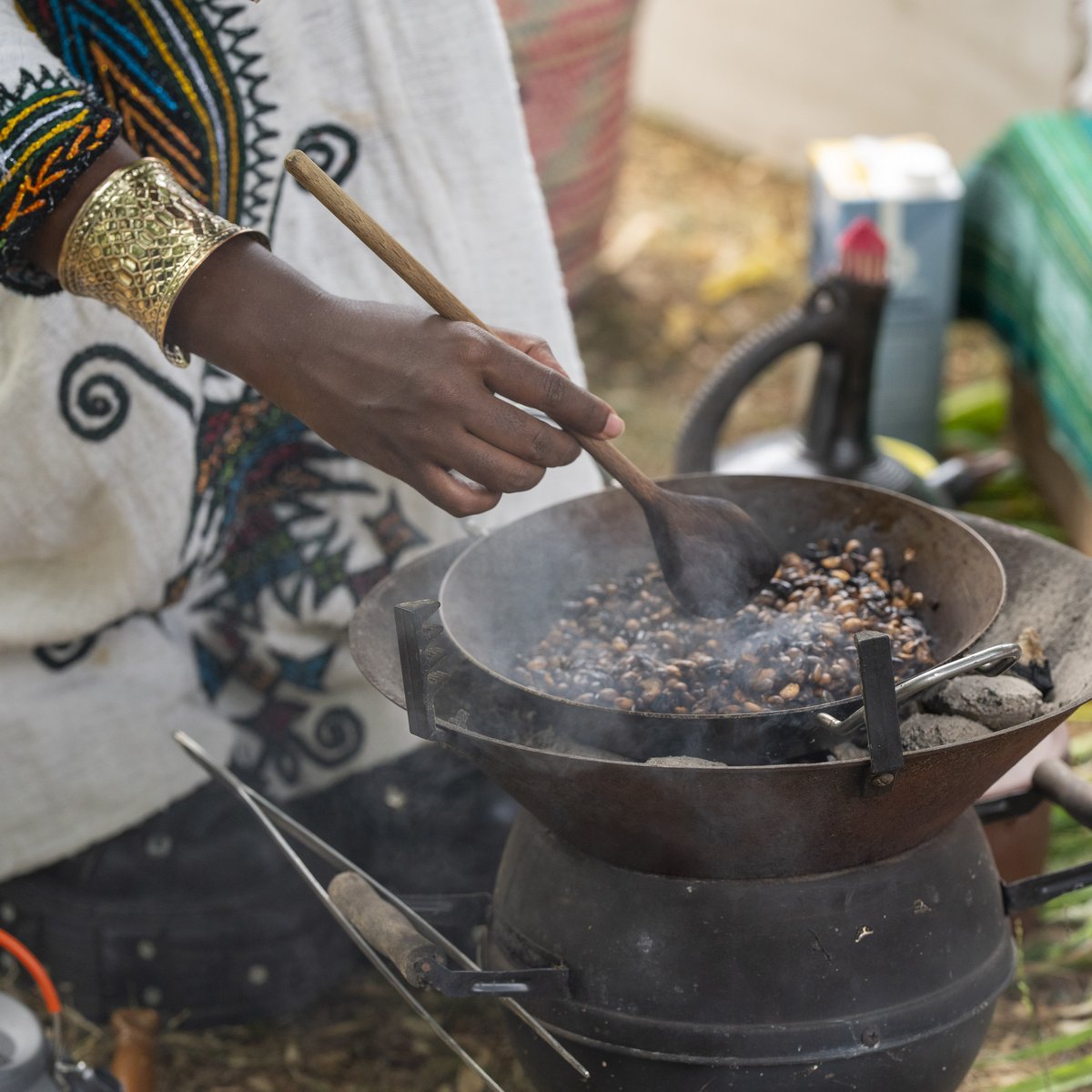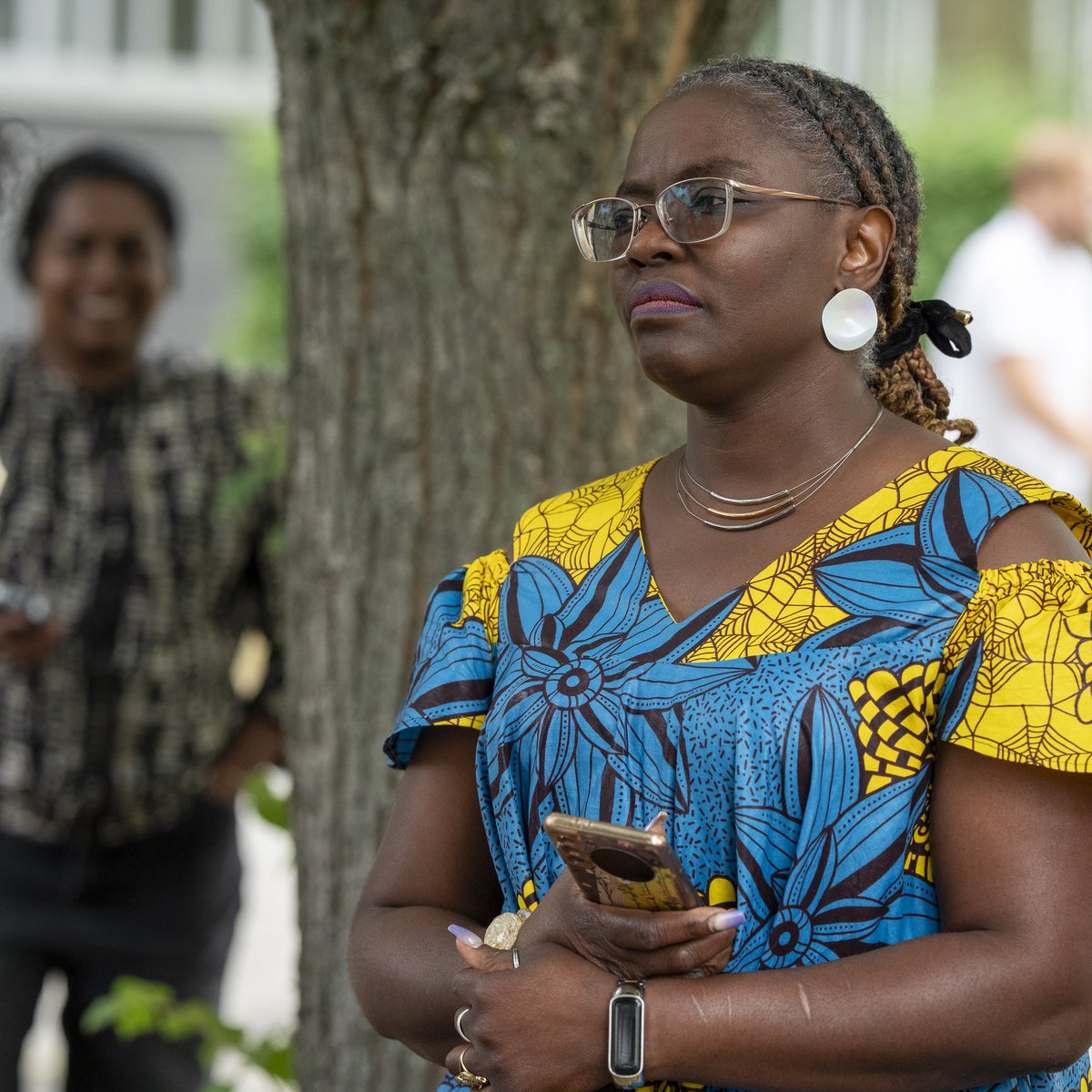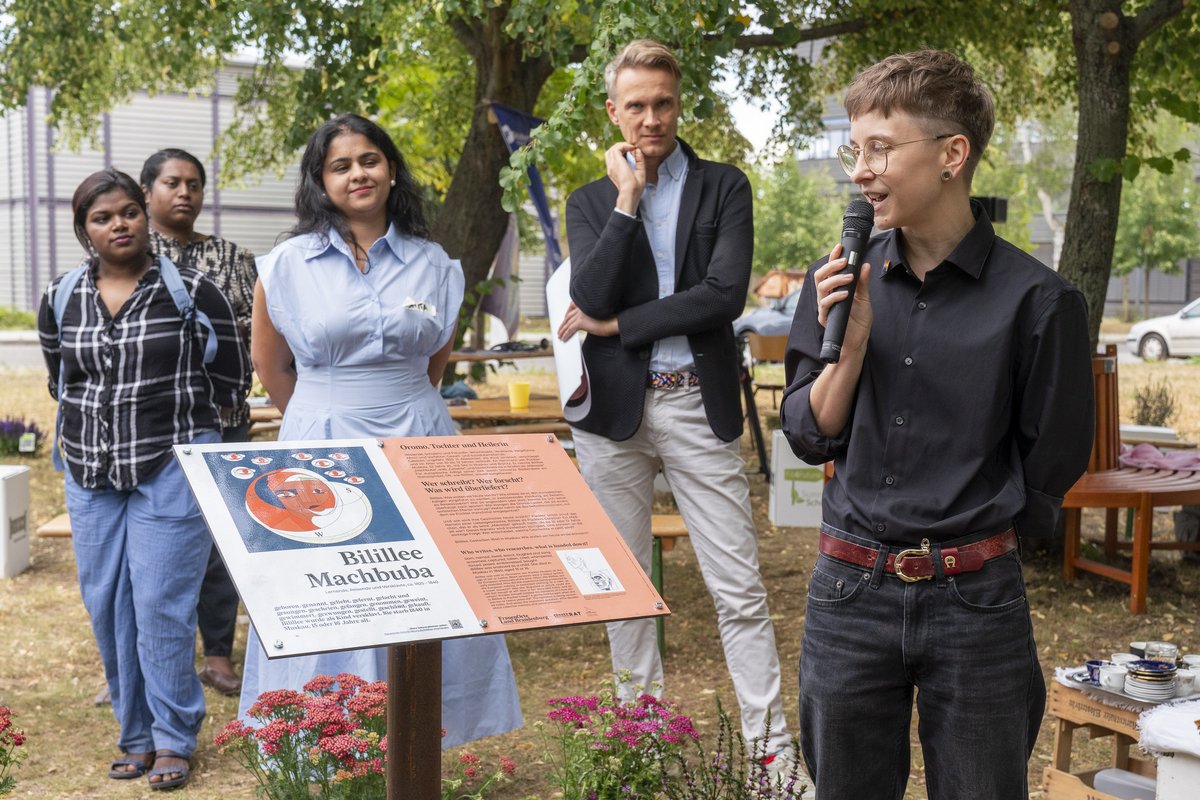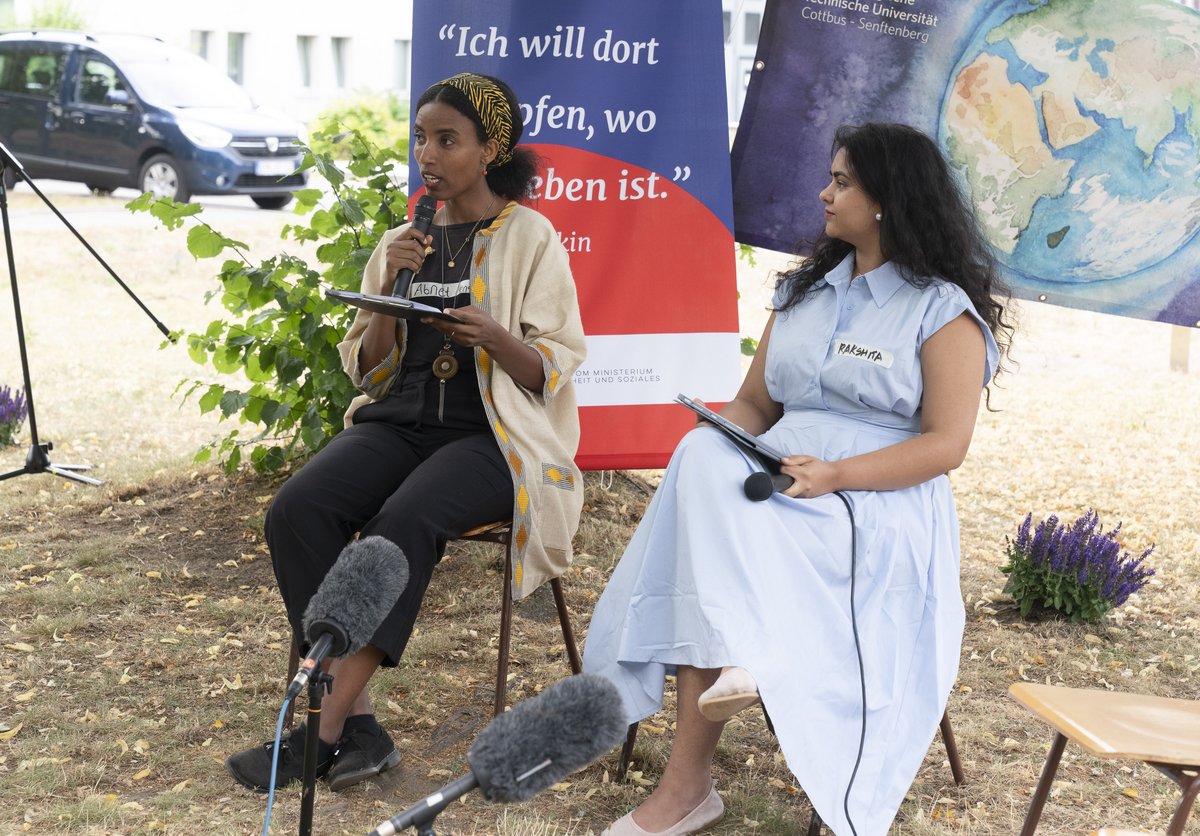FrauenOrt Bilillee Machbuba (2025)
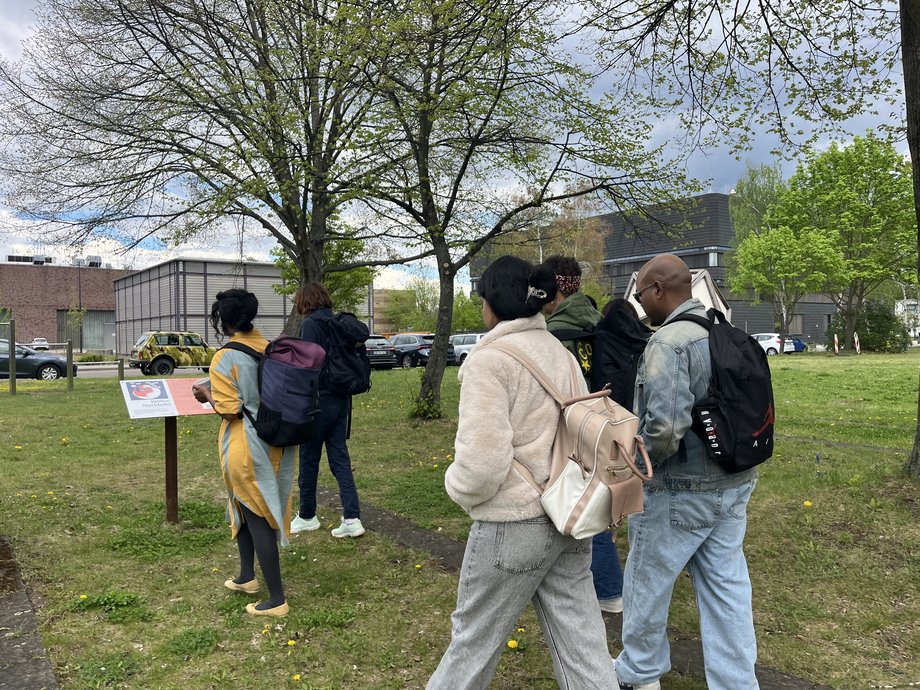
In the summer semester 2025, the students of the BTU4Future Modul cooperated with the artist and critical curator Patricia Vester and FrauenOrte Brandenburg to work on the Women's Place for Bililee Ajiamé Machbuba at the BTU.
The goal was to create a place to reflect on different perspectives on colonial history and, in particular, to highlight marginalized perspectives and decolonize cultures of remembrance.
Location of the Monument
Konrad-Wachsmann-Allee 4-6,
03046 Cottbus
- Bilillee Ajiamé Machbuba
- Our Journey in the Course
- Ideas for the memorial place
- Public openining ceremony
- Further Information
Bilillee Ajiamé Machbuba – A Short Life, A Long Memory
Bilillee Ajiamé Machbuba (click here for a sound of Bilillee) was born around 1825 in what is today western Ethiopia, likely in the Guumma region of the Oromo territories. She was abducted during one of the many regional slave raids that devastated East Africa in the 19th century. From there, she was trafficked via Gondar to Khartoum, a central hub in the northeastern African slave trade (Wikipedia, 2024; Wien Museum Magazin, 2023).
In 1837, during his travels in Egypt and Sudan, the German aristocrat Prince Hermann von Pückler-Muskau encountered and purchased the teenage Bilillee at the slave market in Khartoum. From that point on, she was known as Machbuba—a name meaning “beloved” in Arabic, though it was likely imposed upon her during captivity. Pückler brought her to Europe, where she was introduced in Vienna and Muskau as an exotic curiosity. This was in keeping with the orientalist fascination and racialized aesthetics of the time, which viewed non-European women, particularly Black women, as symbolic of beauty and difference but rarely as full human subjects (Vester, 2023).
Machbuba lived in Pückler’s estate at Schloss Muskau, in present-day eastern Germany. Despite the affluence of her surroundings, her condition was one of cultural alienation, isolation, and declining health. She died young—on October 27, 1840, possibly from tuberculosis—when she was only around 15 to 17 years old. Pückler had her buried in the landscape park of his estate, under a stylized tombstone inscribed with orientalist motifs. Her grave remains to this day, situated in Bad Muskau, and stands as a physical marker of how colonial-era Europe consumed and silenced Black lives while aestheticizing their presence (Wikipedia, 2024).
In her 2023 workbook „gelebt – Das kurze Leben der Bilillee Ajiamé Machbuba“, Patricia Vester reclaims Machbuba’s story from the margins of European history. She presents her not simply as an exoticized object of 19th-century fantasy, but as a symbol of historical injustice, forced displacement, and cultural erasure—and simultaneously as a person of dignity whose life speaks to resilience and memory (Vester, 2023). Vester draws on Afro-German memory practices and decolonial approaches to reinterpret Machbuba’s short life as a lens through which we can interrogate the intersections of racism, gendered oppression, and forgotten colonial violence in German history.
By remembering Machbuba, we are invited to rethink who is commemorated, how stories are told, and whose lives are dignified in our public spaces. Her story becomes part of a broader project of decolonizing memory culture, not just by acknowledging suffering, but by actively restoring agency and visibility to those whose histories were silenced.
References
- Vester, Patricia. gelebt – Das kurze Leben der Bilillee Ajiamé Machbuba. Workbook, 2023.
- “Machbuba.” Wikipedia, https://de.wikipedia.org/wiki/Machbuba
- “Die Geschichte der Afrikanerin Machbuba.” Wien Museum Magazin, 2023. magazin.wienmuseum.at/die-geschichte-der-afrikanerin-machbuba
BTU4Future is an interdisciplinary and participatory course at BTU Cottbus that brought together students from various backgrounds to explore climate protection through creative and critical approaches.
In the summer semester of 2025, the course focused on cultural sustainability and the critical reflection of memory cultures, with a special emphasis on colonial history and marginalized perspectives. As part of the project, students collaborated with FrauenOrte Brandenburg to design a commemorative space for Bilillee Ajiamé Machbuba—a historical figure whose story speaks to colonial violence and forgotten resistance.
The course included a mix of online and in-person sessions, excursions in Cottbus and Berlin, and hands-on group work. It was guided by guest lecturer and artist Patricia Vester, who introduced creative and decolonial methods of learning and remembering.
Through this process, students not only deepened their understanding of justice, but also actively shaped the university as a space of transformation and collective memory.
Reflections from BTU4Future Students
Working on the Machuba monument opened a quiet door in my heart where forgotten voices could finally speak ❤️ (Yasmine)
Building the Machbuba memorial was like bringing her story back to life. It showed me that sharing forgotten stories helps make a world where everyone’s voice counts and we all feel connected. (Nejla)
I feel very fortunate to have been able to help rewrite this history. (Abnet)
Construction day
On 9 July there was the Hands-on construction day, where the BTU4Future students further developped the women's memorial by planting plants and building a tree bench.
During the semester the students worked on various ideas and sketches for the memorial place. Only a few of them got the chance to be realized at the end. However all students published great design ideas for the memorial place:
- Design Proposal for the Bench by Sanoop Kizhakkinipura Unni
- The Broken Crown – A Memorial for Bilille Ajame by Rakshita Bhatt
- Machbuba’s Voice (Legacy) A Memorial Journey in Cottbus by Yasmine Mezraoui
- Design proposal for glass house and plants by Liji Alex and Vadakkeveedan Shaji Adhithya
Furthermore some students worked on study projects by working on the questions: How is black history mapped in Cottbus? Reflect on the existing remembrance of one historic marginalized person (e.g. from your home country) that has a connection to your life in Cottbus: How is the person remembered? Who wrote/build the remembrance and from what perspective? When was the memorial done? How would it need to be rewritten/remade? Here are some of the study project final reports:
- Remembering Nangeli by Liji Alex and Vadakkeveedan Shaji Adhithya
- Remembering Ahmed Baba al-Timbukti by Yasmine Mezraoui
Here is a picture collection of all the great ideas - maybe some of them might be adapted in the future:
On 9 July 2025 the public opening ceremony of the women's place of Bilillee Machbuba took place at the BTU. The event was a great success, with many students, employees and people from Cottbus joining the open discussion about critical remembrance culture at BTU and in Cottbus. The traditional Ethiopian coffee ceremony accompanied the event with wonderful aromas and delicious coffee and popcorn. On the same day there was also the Hands-on construction day, where the BTU4Future students further developped the women's memorial by planting plants and building a tree bench.
Media coverage from the event:
The memorial plaque for Bilillee Machbuba has stood on Konrad-Wachsmann-Allee since last December. Students on the BTU4Future module have spent the last few months working with artist Patricia Vester to further develop the women's memorial. A place has now been created around the Women's Place for Bilillee Ajiamé Machbuba at BTU to reflect on different perspectives on (colonial) history and, in particular, to highlight marginalised perspectives and decolonise cultures of remembrance.
Programme
12:00-16:00
Hands-on construction day for students at the Frauenort
open to all who are interested to help out
17:00-19:00
Official opening ceremony of the 50th women's site
17:00 Greetings
- Prof. Dr. p.h. habil. Gesine Grande, President of BTU Cottbus-Senftenberg
- Patricia Vester, intervention designer and process facilitator on colonial contexts, lecturer as part of "BTU4Future"
- Elio Gäbelein,Women's Political Council and FrauenOrte Land Brandenburg
17:30 Unveiling of the plaque and presentation of the student room design
17:45 Open discussion: Critical remembrance culture at BTU and in Cottbus
- Dr. Gabriela Willbold, Initiator of Black Culture of Remembrance on Bilillee
- Dr. Stefan Körner, Board of the Fürst-Pückler-Museum Foundation
- Dr. Adeline Abimnwi Awemo, Chairwoman of the German-African Association Cottbus, member of the CDU Cottbus
- Aline Erdmann, Equal Opportunities Commissioner of the City of Cottbus
- Prof. Melanie Jaeger-Erben, Head of "BTU4Future" and head of the departement "Sociology of technology and the environment"
- Mohamed Elhag, Administrator for the Bachelor's degree program “Environmental and Resource Management”
18:30 Closing with a traditional Ethiopian coffee ceremony
Location: Konrad-Wachsmann-Allee 4-2, 03046 Cottbus, https://maps.app.goo.gl/SPATuBNQvZXoDpvf7

Literature on the topics of this module
(we have printed versions in our office in LG10 - please contact us if you want to borrow one of them)
Museums that are connected to Bilillee Machbuba
- Stadtmuseum Cottbus
- Stiftung Fürst-Pückler-Museum Park und Schloss Branitz
- Bad Muskau Schloss & Muskauer Park

